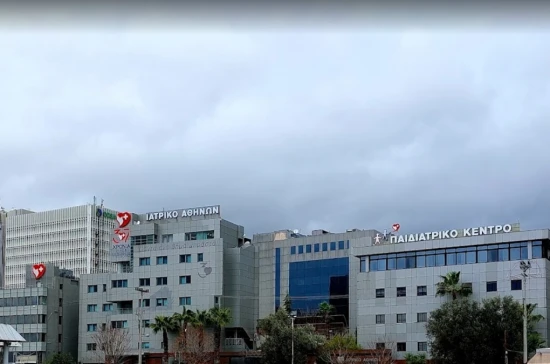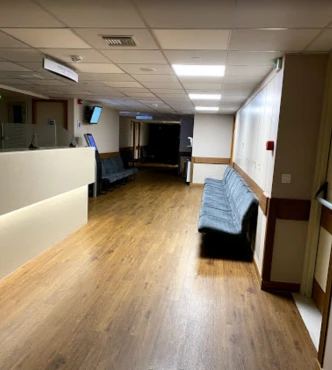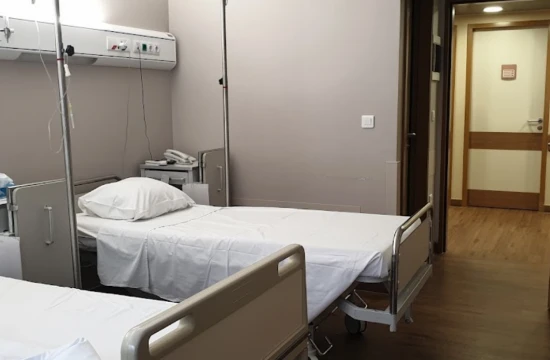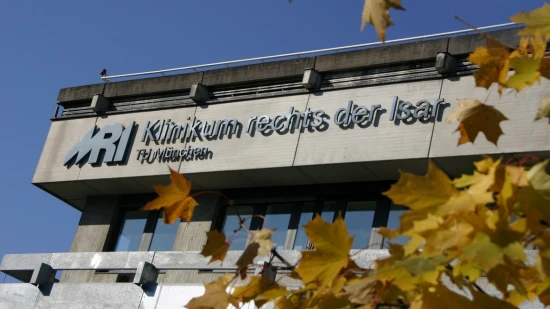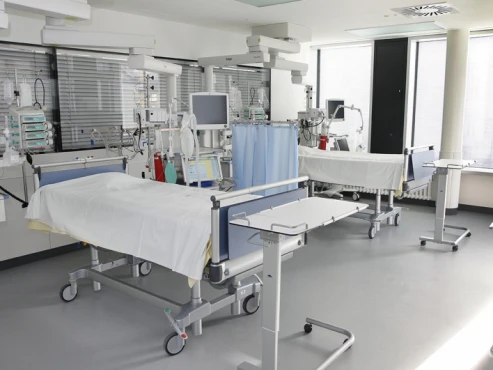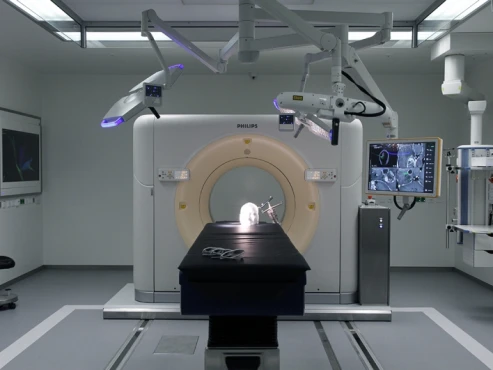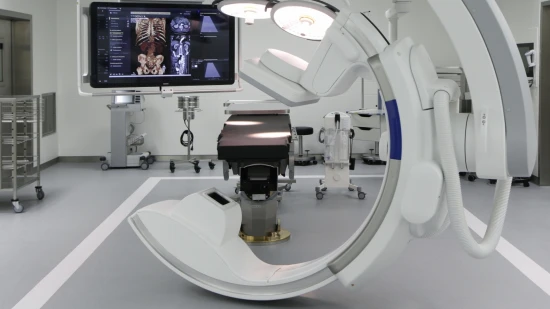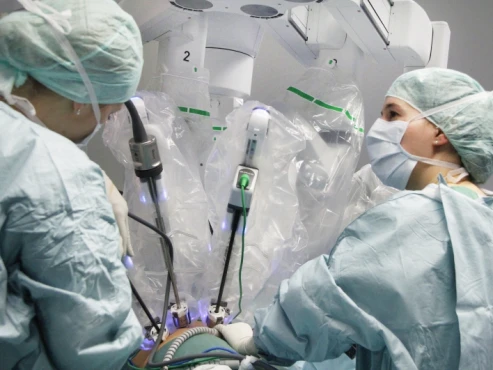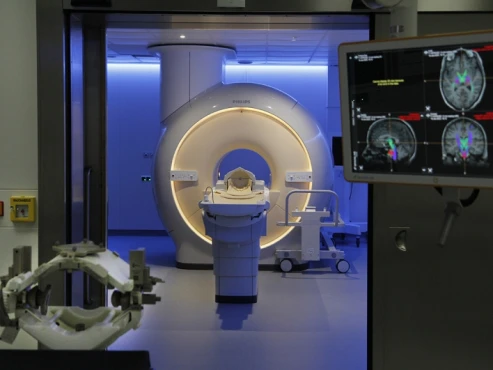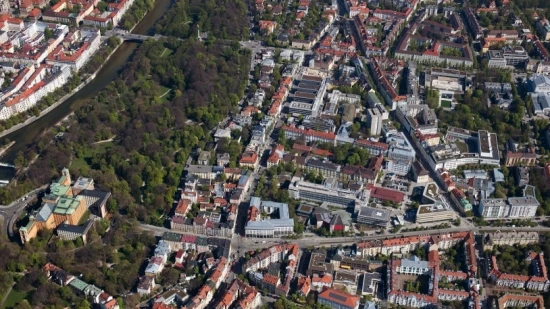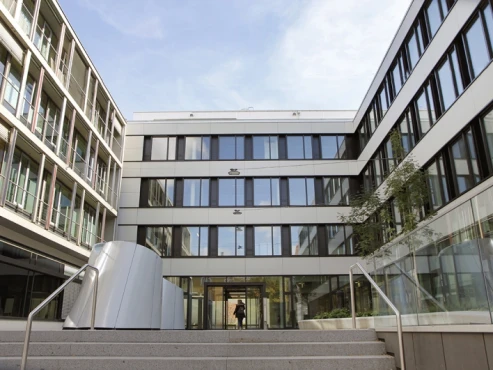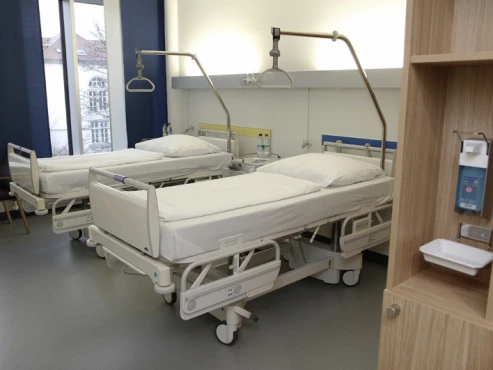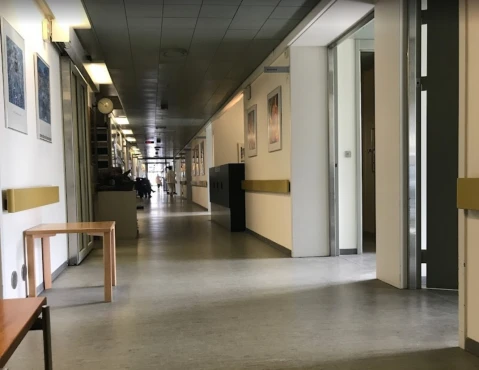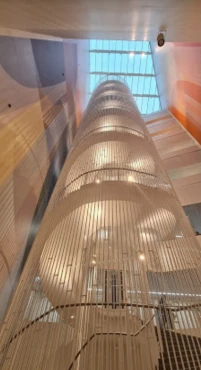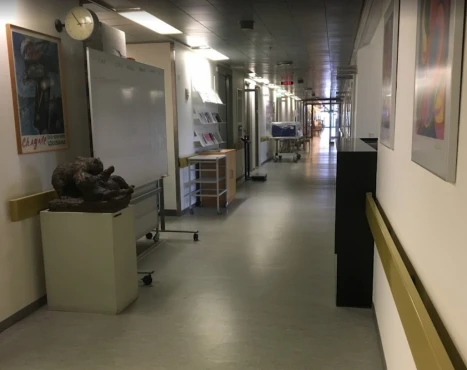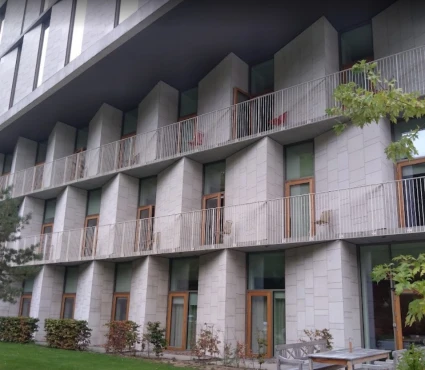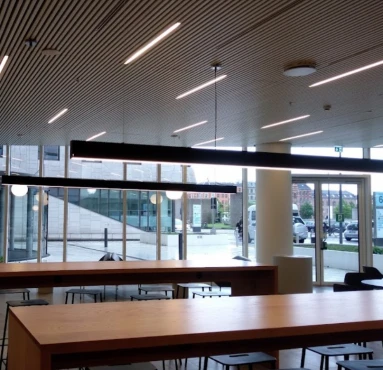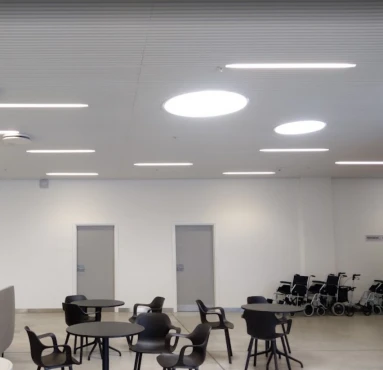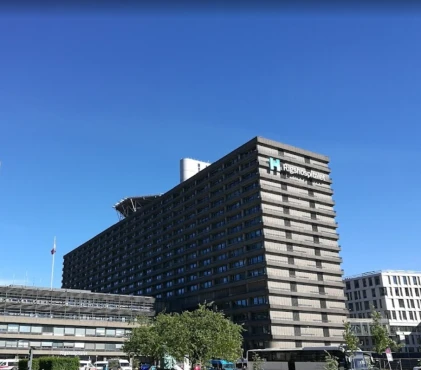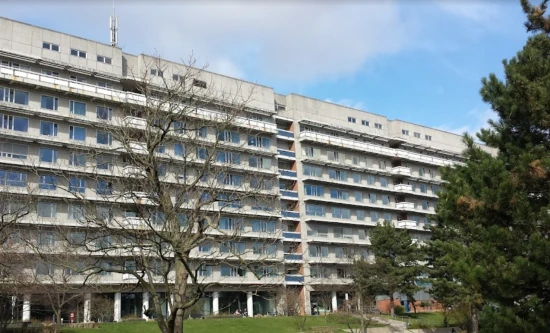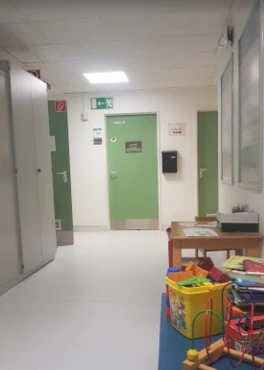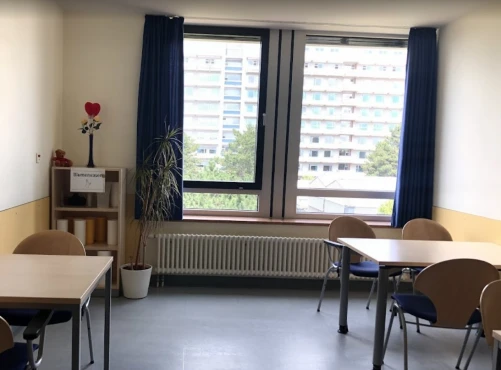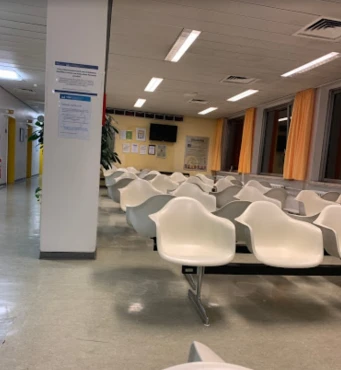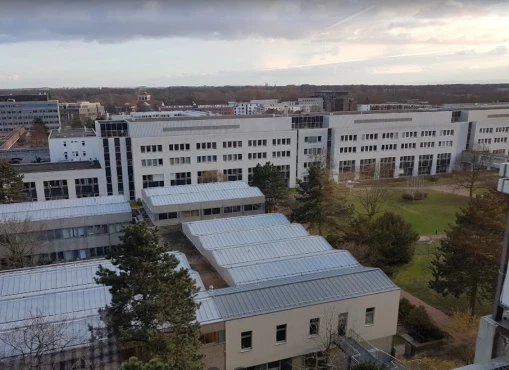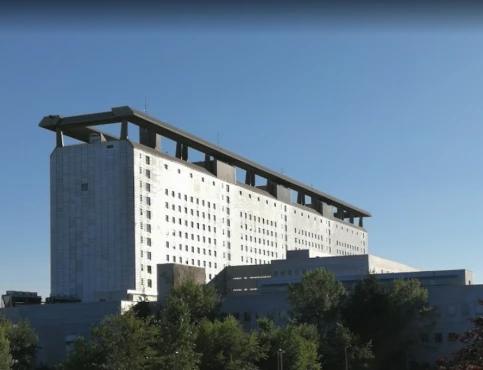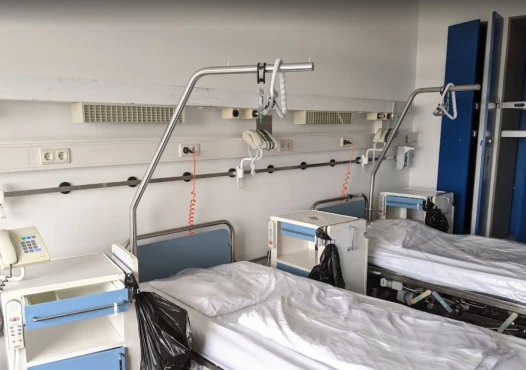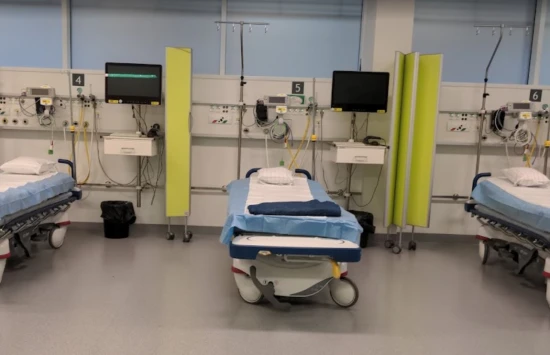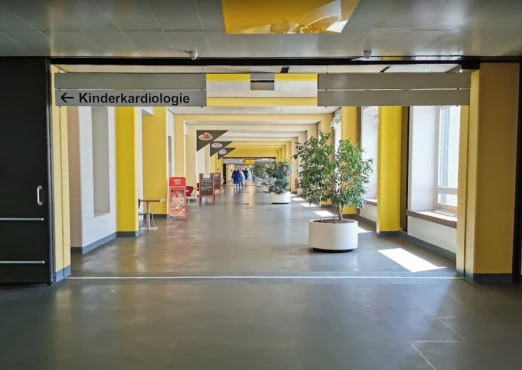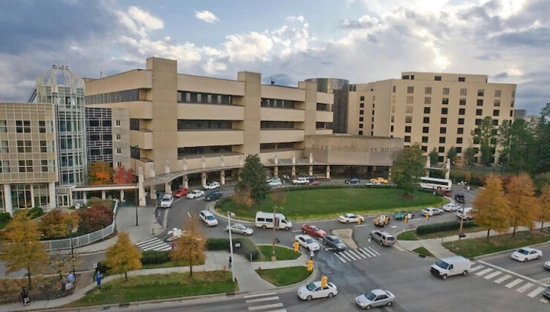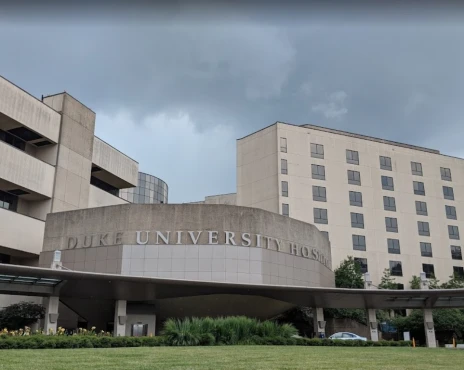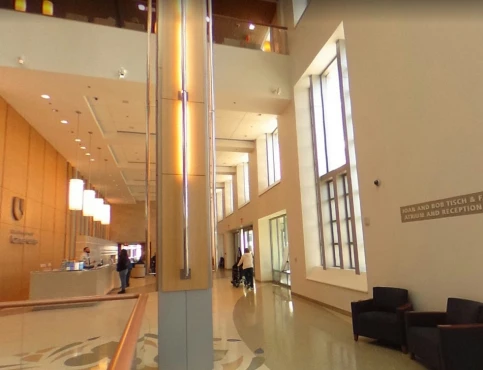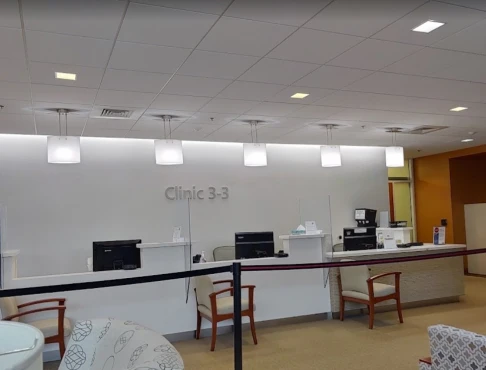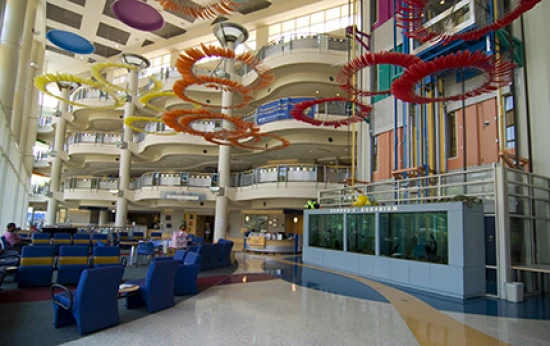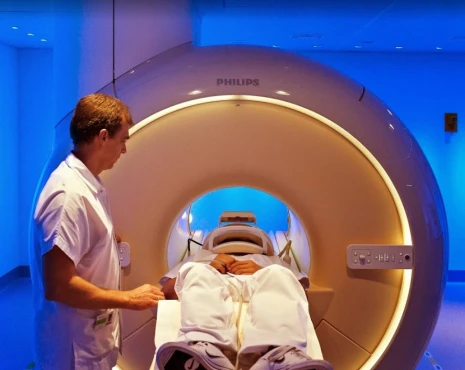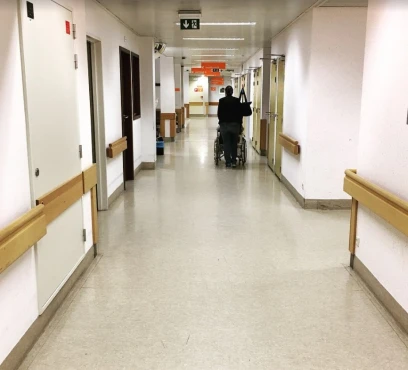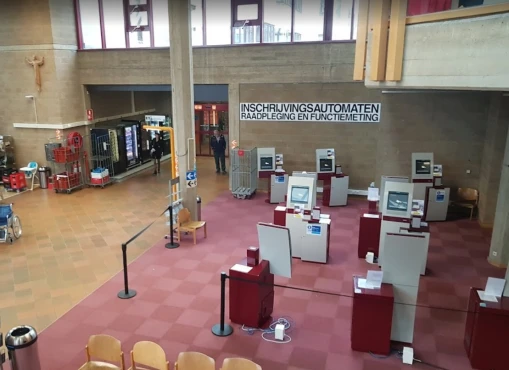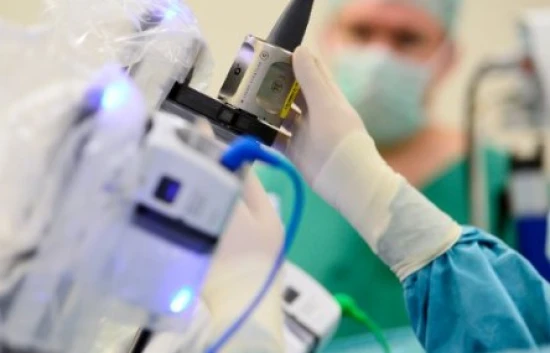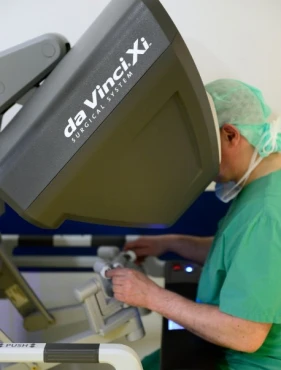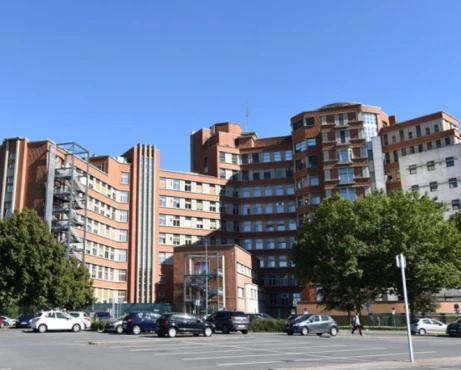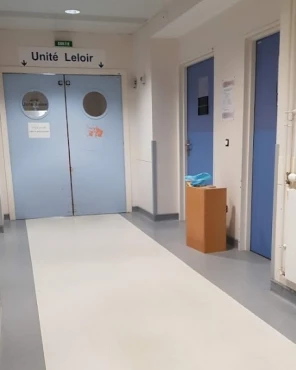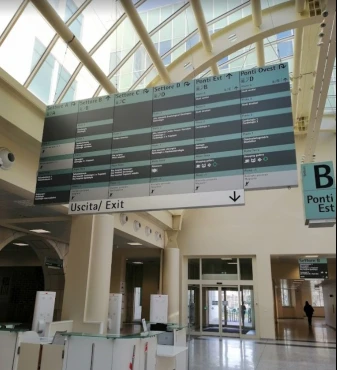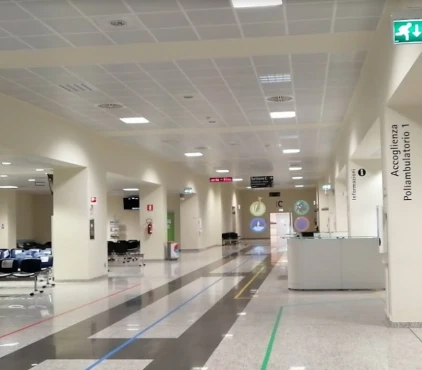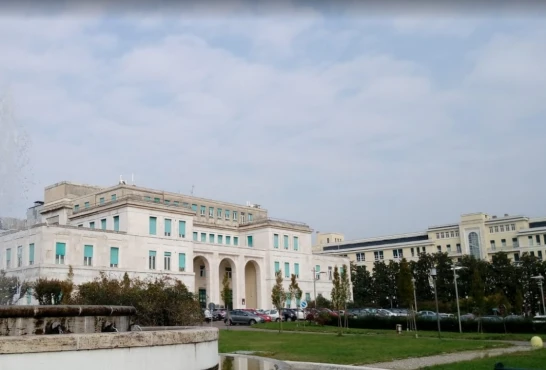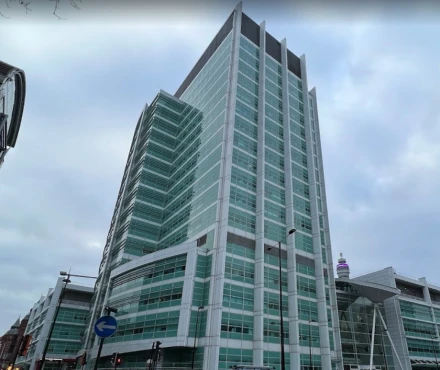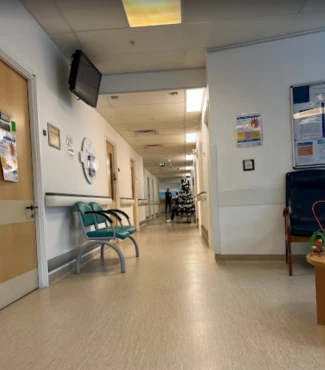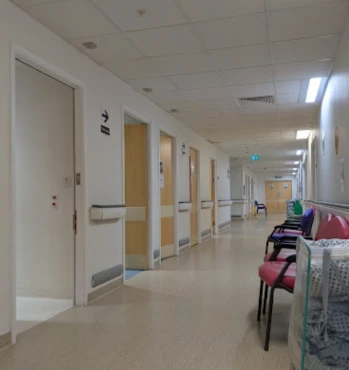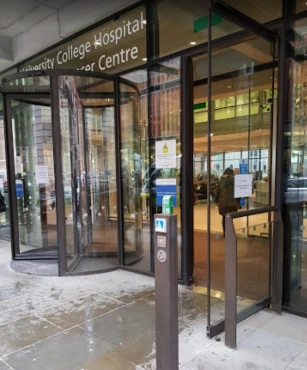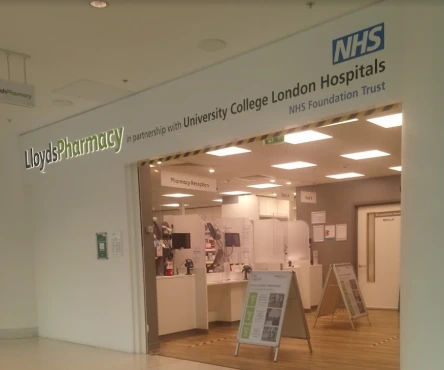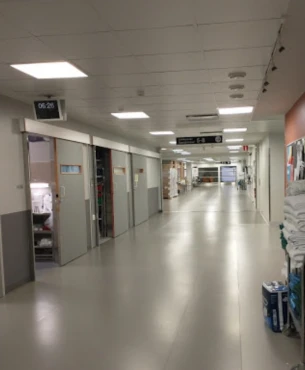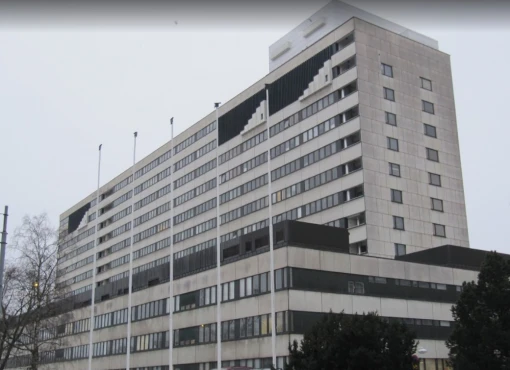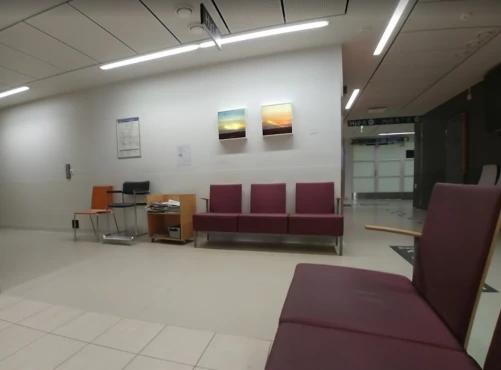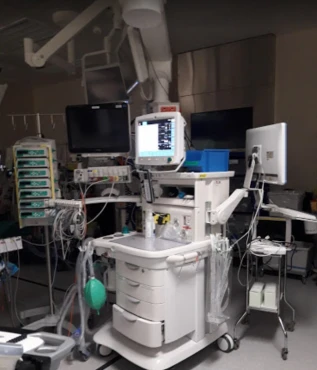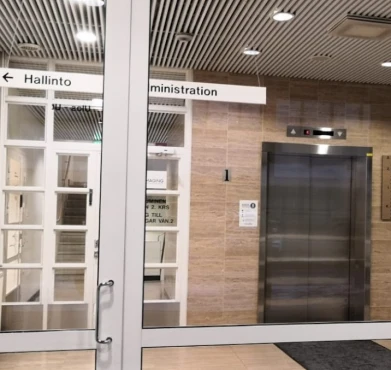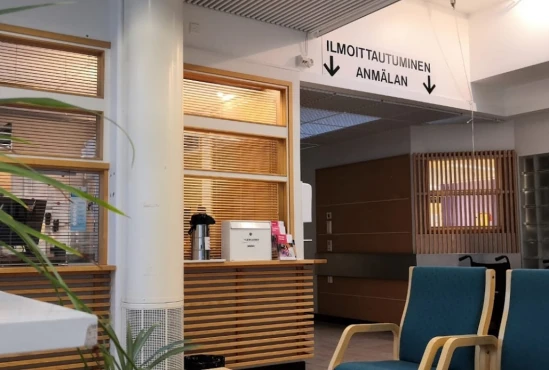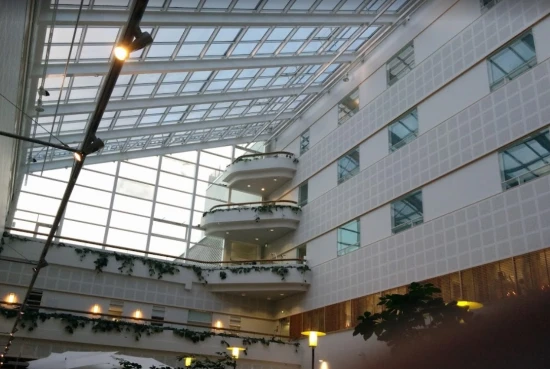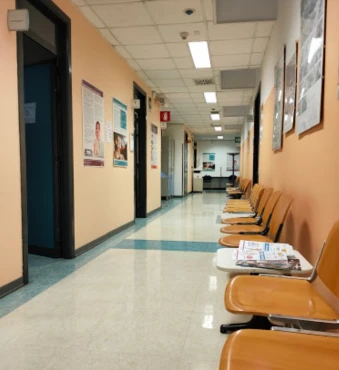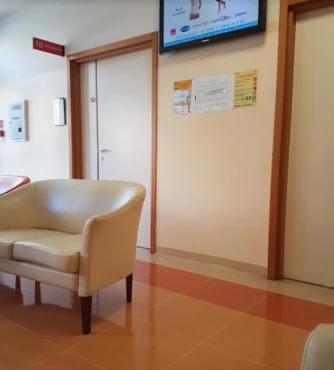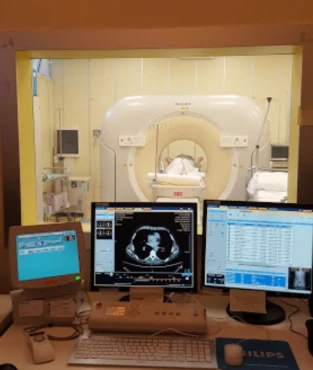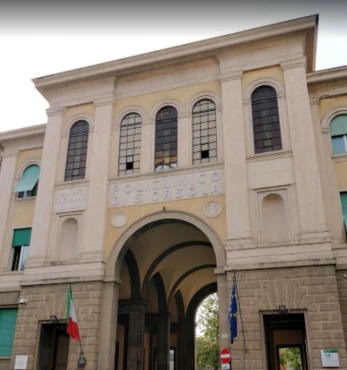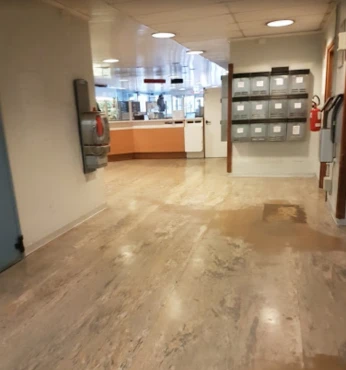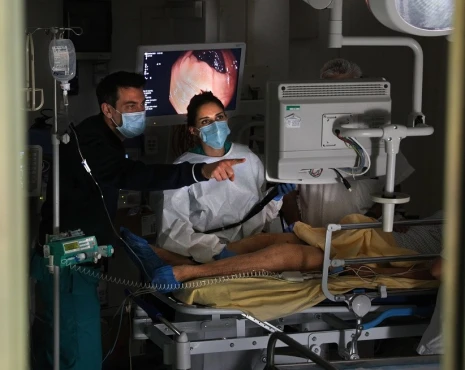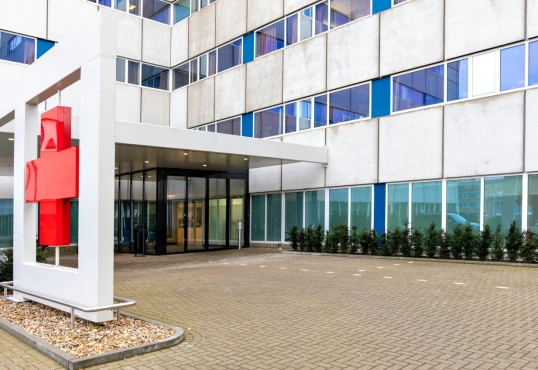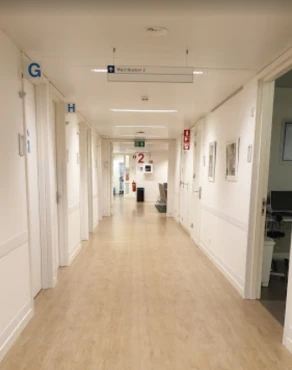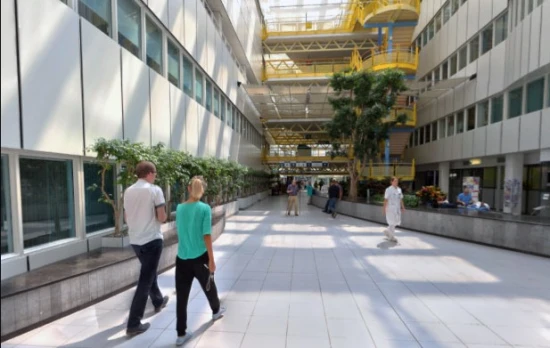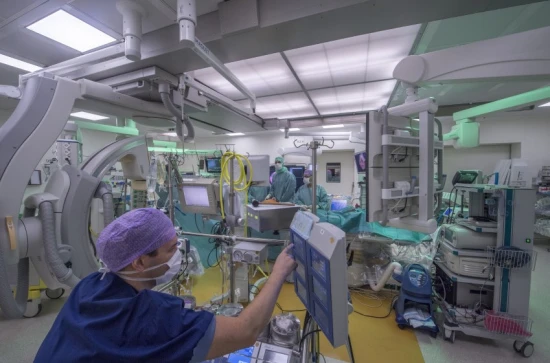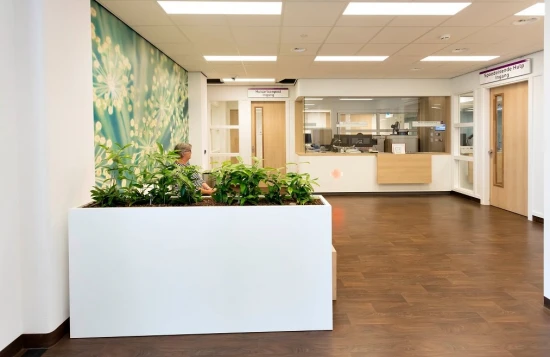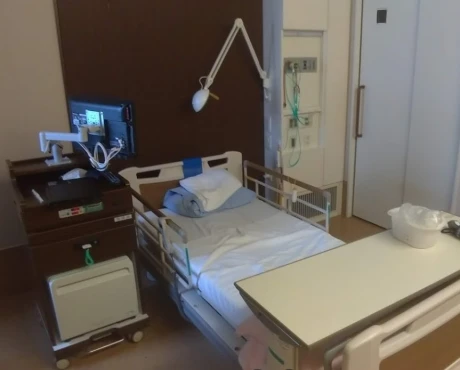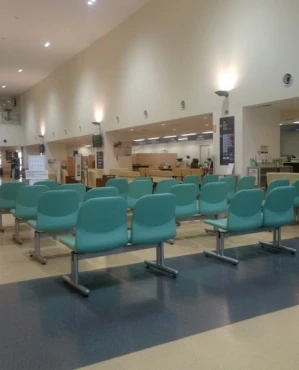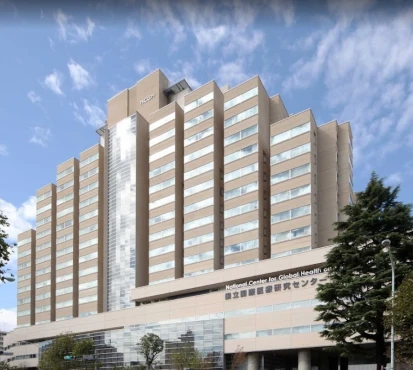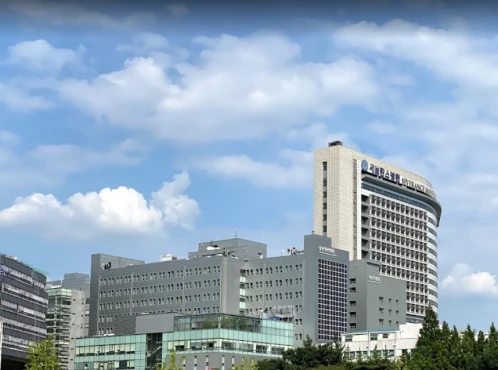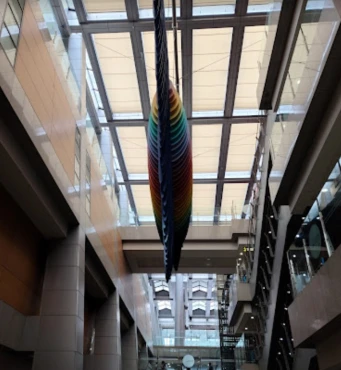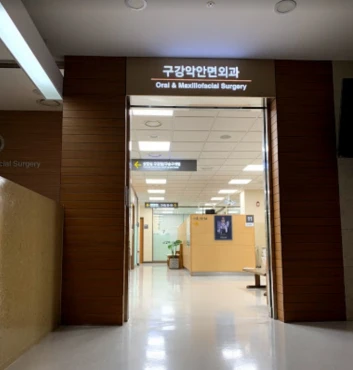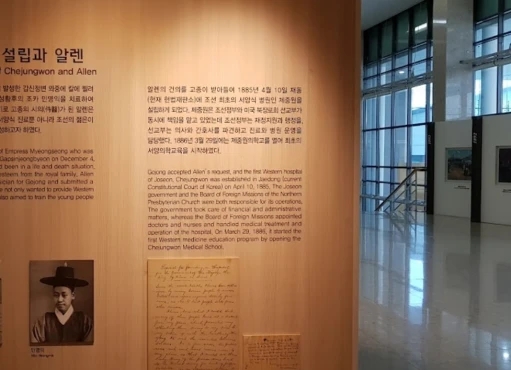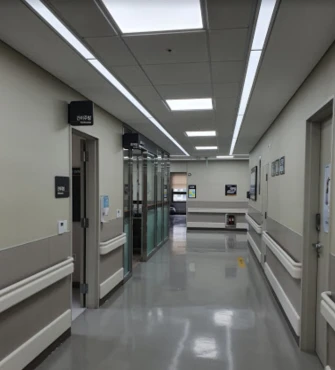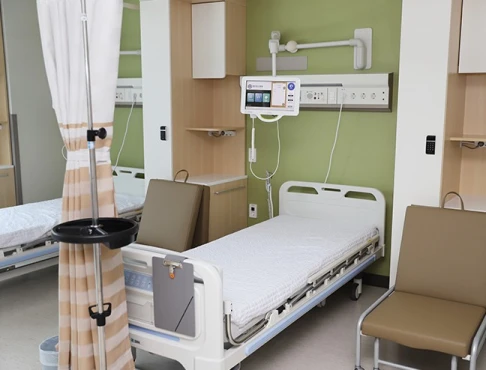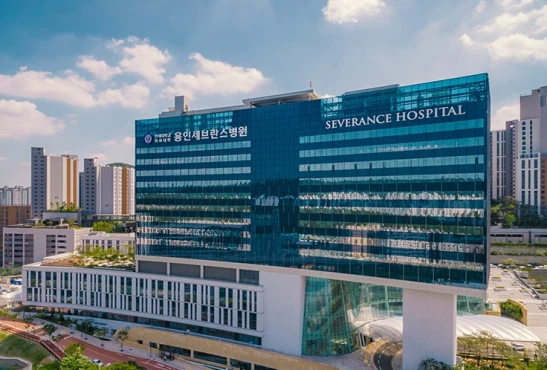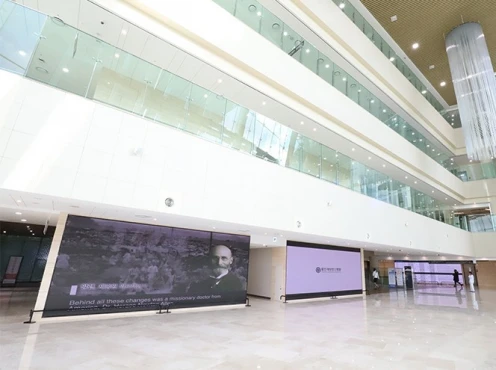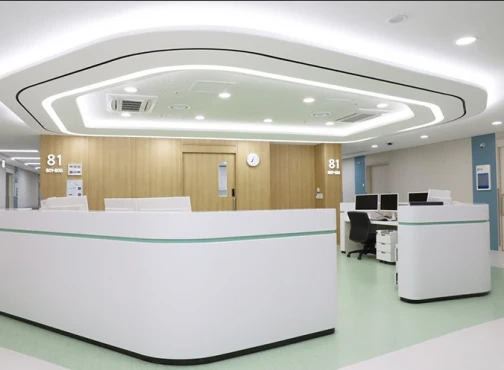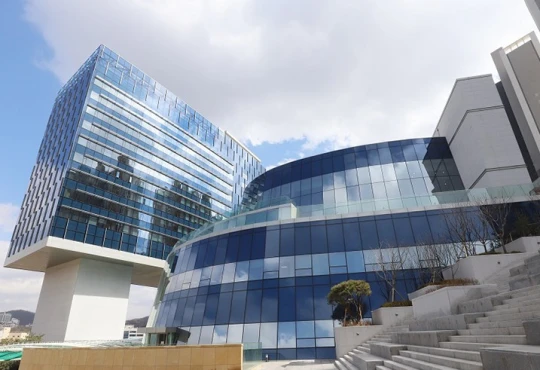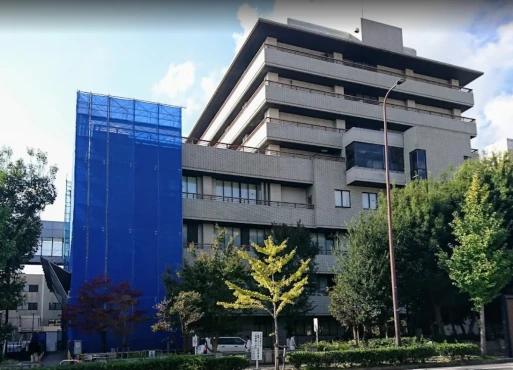Patent ductus arteriosus (PDA) treatment in 685 Cardiac surgery clinics worldwide
Top
Clinics
Ratings
Diseases
Quick navigation
685 clinics specializing in Cardiac surgery providing treatment of Patent ductus arteriosus (PDA) Patent ductus arteriosus (PDA) is a congenital heart defect where the ductus arteriosus, a blood vessel that connects the pulmonary artery and the aorta in a fetus, fails to close after birth. It can lead to abnormal blood flow and strain on the heart. disease worldwide.
5
from Stef Kormpas
July 20, 2023
Private hospital, one of the top in Athens.
1
from Gian Maria Turi
October 24, 2021
This bunch of idiots organize the covid rapid test in the international airport of Athens with only 2 (two) operators to do the actual work (but 4 to take payments).
It takes 2 hs for a 10' work and then people miss their flights.
Update
Furthermore: thieves. They do tests to kids under 12 even though not necessary.
2
from arckpi
July 20, 2021
Nasty experience at their Corona testing center at AIA. We prepaid the tests online and still had to wait more than one hour for a simple rapid test. Somehow the prepaid line moves slower than the normal line. That's partly because they accept also people who have not prepaid in advance in the same line and they don't turn them away. The test itself is rather quick, the two testing lines sit around doing nothing because the 6 desks cannot send them people fast enough (it takes roughly 5 minutes per person to scan qr, look at documents, print consents, print labels etc). Then you have to queue for the results because that is actually quicker than receiving them on email (pictured). If we would have waited for the mail I am not sure we would have made it to the flight. I would recommend to come about 4 hours before your flight to be comfortable.
Prices for popular procedures:
-
Patent ductus arteriosus (PDA) ligation in children
≈ $9,465
-
Patent ductus arteriosus (PDA) open heart surgery in adults
≈ $4,422
-
Transcatheter closure of patent ductus arteriosus (PDA) in adults
≈ $5,679
-
Dual chamber pacemaker insertion
≈ $6,676
-
Coronary artery bypass graft (CABG)
≈ $24,038
-
Heart valve replacement
≈ $26,645
-
Heart valve repair
≈ $19,360
-
Aortic valve replacement (AVR)
≈ $33,492
-
Mitral valve replacement (MVR)
≈ $22,105
2.8
5 reviews
5
from Stef Kormpas
July 20, 2023
Private hospital, one of the top in Athens.
1
from Gian Maria Turi
October 24, 2021
This bunch of idiots organize the covid rapid test in the international airport of Athens with only 2 (two) operators to do the actual work (but 4 to take payments).
It takes 2 hs for a 10' work and then people miss their flights.
Update
Furthermore: thieves. They do tests to kids under 12 even though not necessary.
2
from arckpi
July 20, 2021
Nasty experience at their Corona testing center at AIA. We prepaid the tests online and still had to wait more than one hour for a simple rapid test. Somehow the prepaid line moves slower than the normal line. That's partly because they accept also people who have not prepaid in advance in the same line and they don't turn them away. The test itself is rather quick, the two testing lines sit around doing nothing because the 6 desks cannot send them people fast enough (it takes roughly 5 minutes per person to scan qr, look at documents, print consents, print labels etc). Then you have to queue for the results because that is actually quicker than receiving them on email (pictured). If we would have waited for the mail I am not sure we would have made it to the flight. I would recommend to come about 4 hours before your flight to be comfortable.
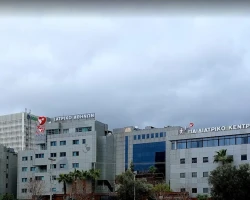
Athens, Greece
Specializations: Cardiac surgery, Vascular surgery, Thoracic surgery, Neurosurgery, Spine surgery, Orthopedic surgery, Oncology
Languages: Arabic, English, French, German, Italian, Russian, Spanish; Castilian
Athens Medical Center offers a full range of services to patients, 24 hours a day, 365 days a year. AMC’s internationally acclaimed medical staff, assisted
read more
4
from Bruno Monteiro
November 28, 2023
I got a brain surgery in 2017 and stayed for over a week here. I felt well treated, especially by the staff of international nurses and some doctors. I got some complications that I don't know whether they came from the care I got or if I dodged a bullet (6 hours surgery).
Follow ups are a pain, emails don't work, phones only, and one has to wait for months for something.l, but the system is the bigger problem. I trust the professionals here, some will even talk English to you if asked. (Sure, don't come to the emergencies if you can be treated elsewhere).
The facilities look a bit better than other hospitals in town.
1
from Anioi Hil
August 10, 2023
the worst hospital I've been to. I broke my leg and they told me to go at 7 in the morning for the operation and they left me until 8 in the evening without giving me any information, without water. Then they remembered to come and inform me. The next time I was driving with my mother, who had a bypass and her blood pressure was quite high. The doctor asks me if he is dead? does someone have to die for us to go to the hospital? Because we also pay insurance for the doctors.
1
from Hamdi Gargouri
July 22, 2023
This is going to be a long story about my terrible experience in the emergency service.
An ambulance brought me here at 21:30 with a broken swollen ankle.
Since the emergency guy brought me inside and put me in a bed, no one came to me to do the first check-up.
I begged 3 "nurses" to at least bring me ice because I am dying of pain. They go and never come back. They didnt give me ice, nor pain killers, they didn't even do a first check-up on me. How professional! especially when I can see them talking to each other, laughing, talking over the phone. The level of ignorance that I saw here is unimaginable. They are lucky that I was in pain otherwise I would have called the police.
So around midnight finally someone came to do xray for me. half an hour later someone came to me to explain the severity of the injury, put the cast for me and gave me the crutches. Then he told me a nurse will come to explain everything, show me how to walk with the crutches, bring me outside with a wheelchair and call me a taxi. But no one showed up. I was screaming and no one heard me.
At the end, around 02:30 I had to ask a "guest" for help. Luckily he was a nice guy unlike the nurses and stuff here. He helped me to walk outside and waited with me for a taxi that I called!
I am waiting to fully recover and then I will see a lawyer about this.
I even called them after days to send me the xray because the doctor wants to see them and they ignored my emails and phone calls.
5 hourse in the emergency with a broken ankel. No help, no check-up, no ice, no pain killers. No one helped me to leave and they didnt even call me a taxi!!
Prices for popular procedures:
-
Patent ductus arteriosus (PDA) ligation in children
≈ $33,112
-
Patent ductus arteriosus (PDA) open heart surgery in adults
≈ $24,920
-
Transcatheter closure of patent ductus arteriosus (PDA) in adults
≈ $27,539
-
Dual chamber pacemaker insertion
≈ $21,420
-
Coronary artery bypass graft (CABG)
≈ $46,654
-
Heart valve replacement
≈ $75,268
-
Heart valve repair
≈ $57,619
-
Aortic valve replacement (AVR)
≈ $52,871
-
Mitral valve replacement (MVR)
≈ $57,570
3.1
5 reviews
4
from Bruno Monteiro
November 28, 2023
I got a brain surgery in 2017 and stayed for over a week here. I felt well treated, especially by the staff of international nurses and some doctors. I got some complications that I don't know whether they came from the care I got or if I dodged a bullet (6 hours surgery).
Follow ups are a pain, emails don't work, phones only, and one has to wait for months for something.l, but the system is the bigger problem. I trust the professionals here, some will even talk English to you if asked. (Sure, don't come to the emergencies if you can be treated elsewhere).
The facilities look a bit better than other hospitals in town.
1
from Anioi Hil
August 10, 2023
the worst hospital I've been to. I broke my leg and they told me to go at 7 in the morning for the operation and they left me until 8 in the evening without giving me any information, without water. Then they remembered to come and inform me. The next time I was driving with my mother, who had a bypass and her blood pressure was quite high. The doctor asks me if he is dead? does someone have to die for us to go to the hospital? Because we also pay insurance for the doctors.
1
from Hamdi Gargouri
July 22, 2023
This is going to be a long story about my terrible experience in the emergency service.
An ambulance brought me here at 21:30 with a broken swollen ankle.
Since the emergency guy brought me inside and put me in a bed, no one came to me to do the first check-up.
I begged 3 "nurses" to at least bring me ice because I am dying of pain. They go and never come back. They didnt give me ice, nor pain killers, they didn't even do a first check-up on me. How professional! especially when I can see them talking to each other, laughing, talking over the phone. The level of ignorance that I saw here is unimaginable. They are lucky that I was in pain otherwise I would have called the police.
So around midnight finally someone came to do xray for me. half an hour later someone came to me to explain the severity of the injury, put the cast for me and gave me the crutches. Then he told me a nurse will come to explain everything, show me how to walk with the crutches, bring me outside with a wheelchair and call me a taxi. But no one showed up. I was screaming and no one heard me.
At the end, around 02:30 I had to ask a "guest" for help. Luckily he was a nice guy unlike the nurses and stuff here. He helped me to walk outside and waited with me for a taxi that I called!
I am waiting to fully recover and then I will see a lawyer about this.
I even called them after days to send me the xray because the doctor wants to see them and they ignored my emails and phone calls.
5 hourse in the emergency with a broken ankel. No help, no check-up, no ice, no pain killers. No one helped me to leave and they didnt even call me a taxi!!
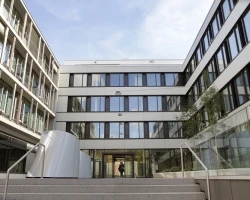
Munich, Germany
Specializations: Cardiac surgery, Vascular surgery, Thoracic surgery, Neurosurgery, Spine surgery, Orthopedic surgery, Oncology
Languages: English, Spanish; Castilian
Klinikum rechts der Isar is the university hospital of the Technical University Munich (TUM), and provides the ideal setting in which to offer the best
read more
5
from Ash Gavin
October 02, 2023
I didn’t know you’re supposed to first call 1813 before heading to the hospital for something like a cut, but the nurses and doctors in the trauma centre were incredibly kind and attentive and my injury has healed incredibly well. Huge thanks to the amazing staff!!
5
from Rainer Røssvoll
August 28, 2023
I was told that i had broke my bone💔 that was kind of mean💔 but they fixed it so i guess its okay😊 it was free also that is really cool😊😊 in Usa i had to pay 800$ for a blood test😓
5
from Malcolm Broughton
July 10, 2023
I have nothing but praise for the staff of the ward I had to attend. My wife's colostomy kit and bags had gone astray with our luggage on our flight from Birmingham to Copenhagen. With assistance from friends we contacted the hospital, who gave us a complete set of spares and kit to last the few days that we were staying in Copenhagen. I offered payment, which was declined. The nurse who I saw was very kind, patient, understanding and compassionate, especially as the choice of items was so overwhelming and the event so upsetting.
Prices for popular procedures:
-
Patent ductus arteriosus (PDA) ligation in children
≈ $20,238
-
Patent ductus arteriosus (PDA) open heart surgery in adults
≈ $9,929
-
Transcatheter closure of patent ductus arteriosus (PDA) in adults
≈ $11,904
-
Dual chamber pacemaker insertion
≈ $14,767
-
Coronary artery bypass graft (CABG)
≈ $47,121
-
Heart valve replacement
≈ $55,264
-
Heart valve repair
≈ $41,628
-
Aortic valve replacement (AVR)
≈ $70,850
-
Mitral valve replacement (MVR)
≈ $50,777
4.1
5 reviews
5
from Ash Gavin
October 02, 2023
I didn’t know you’re supposed to first call 1813 before heading to the hospital for something like a cut, but the nurses and doctors in the trauma centre were incredibly kind and attentive and my injury has healed incredibly well. Huge thanks to the amazing staff!!
5
from Rainer Røssvoll
August 28, 2023
I was told that i had broke my bone💔 that was kind of mean💔 but they fixed it so i guess its okay😊 it was free also that is really cool😊😊 in Usa i had to pay 800$ for a blood test😓
5
from Malcolm Broughton
July 10, 2023
I have nothing but praise for the staff of the ward I had to attend. My wife's colostomy kit and bags had gone astray with our luggage on our flight from Birmingham to Copenhagen. With assistance from friends we contacted the hospital, who gave us a complete set of spares and kit to last the few days that we were staying in Copenhagen. I offered payment, which was declined. The nurse who I saw was very kind, patient, understanding and compassionate, especially as the choice of items was so overwhelming and the event so upsetting.

København, Denmark
Specializations: Cardiac surgery, Vascular surgery, Thoracic surgery, Neurosurgery, Spine surgery, Orthopedic surgery, Oncology
The hospital opened in 1757 and was located in Bredgade in the building where the Museum of Art and Design is today. In 1910 the
read more
1
from Mariann-Regine Göke-konstanz
November 14, 2023
Worst criminal violators "working" there!!
Stole one of my Organs also, when i was three years Young, and many litres of blood!!
Other Details, you dont really wanna know 🤢🤢🤢🤮
5
from Emma G.
March 03, 2023
Ok where do I start… first of all I don’t understand the negative comments here. The doctors are very good, excellent! They are so excited when they know our mother tongue is English and they want to talk English to us! We even had today two nurses, they asked if we can stick with English, since they never get the chance to talk in English! The nurses are just so nice and welcoming! We feel so good treated from the doctors and also from the nurses, generally all staff! You need to understand this is a VERY BUSY hospital, people are coming from many kilometers away to see a specialist here! If you don’t have anything severe, don’t keep this hospital busy. Since people like us travel miles in order to come to this Zentrum! We are very happy to be treated well. Just the organization feels sometimes kind of chaotic, probably is due to the busyness of this hospital.
Thank you MHH for taking great care of us! Yes the architecture and rooms feel sometimes outdated, because this hospital was built like 60 yrs ago. But who cares about that, when the care is very good!
Our comments are for two clinics: Hepatologie and also Viszeralchirurgie! Can only highly recommend it!
1
from Amine Aa
October 26, 2022
0 humanity,0 empathy. It’s not up to anyone to work in a hospital.some are juste heartless.
Prices for popular procedures:
-
Patent ductus arteriosus (PDA) ligation in children
≈ $33,112
-
Patent ductus arteriosus (PDA) open heart surgery in adults
≈ $24,920
-
Transcatheter closure of patent ductus arteriosus (PDA) in adults
≈ $27,539
-
Coronary artery bypass graft (CABG)
≈ $46,654
-
Heart valve replacement
≈ $75,268
-
Heart valve repair
≈ $57,619
-
Aortic valve replacement (AVR)
≈ $52,871
-
Mitral valve replacement (MVR)
≈ $57,570
-
Transcatheter aortic valve replacement (TAVR)
≈ $139,039
3.3
5 reviews
1
from Mariann-Regine Göke-konstanz
November 14, 2023
Worst criminal violators "working" there!!
Stole one of my Organs also, when i was three years Young, and many litres of blood!!
Other Details, you dont really wanna know 🤢🤢🤢🤮
5
from Emma G.
March 03, 2023
Ok where do I start… first of all I don’t understand the negative comments here. The doctors are very good, excellent! They are so excited when they know our mother tongue is English and they want to talk English to us! We even had today two nurses, they asked if we can stick with English, since they never get the chance to talk in English! The nurses are just so nice and welcoming! We feel so good treated from the doctors and also from the nurses, generally all staff! You need to understand this is a VERY BUSY hospital, people are coming from many kilometers away to see a specialist here! If you don’t have anything severe, don’t keep this hospital busy. Since people like us travel miles in order to come to this Zentrum! We are very happy to be treated well. Just the organization feels sometimes kind of chaotic, probably is due to the busyness of this hospital.
Thank you MHH for taking great care of us! Yes the architecture and rooms feel sometimes outdated, because this hospital was built like 60 yrs ago. But who cares about that, when the care is very good!
Our comments are for two clinics: Hepatologie and also Viszeralchirurgie! Can only highly recommend it!
1
from Amine Aa
October 26, 2022
0 humanity,0 empathy. It’s not up to anyone to work in a hospital.some are juste heartless.

Hannover, Germany
Specializations: Cardiac surgery, Vascular surgery, Thoracic surgery, Neurosurgery, Spine surgery, Orthopedic surgery, Oncology
The MHH Hospital is a maximum care hospital with a nationwide catchment area. The university teaches medicine, dentistry, biochemistry, biomedicine, midwifery and health sciences. The
read more
1
from Sanjay Agarwal
August 27, 2023
Was there at 10:30 PM . They registered quick , took blood and immediately send me to the concerned department. However had to wait 3 hrs before a dr finally addressed me . Really is this how they define emergency?
3
from Miss Grace
July 25, 2023
A tertiary hospital with a lot to offer, successful surgeries and high tech equipments. Problem is the people working in it. It puzzles me why some staff doctors and nurses are incompetent, arrogant, rude and unfriendly.
1
from MsLadySoleil
July 15, 2023
Disaster! Avoid coming here by all means. Hours and hours waiting when there are no other patients and you are being told just to wait a little bit more! Catastrophic, the worst ever!!!!!!
Prices for popular procedures:
-
Patent ductus arteriosus (PDA) open heart surgery in adults
≈ $24,920
-
Coronary artery bypass graft (CABG)
≈ $46,654
-
Off-pump coronary artery bypass surgery
≈ $52,869
-
Atrial septal defect (ASD) repair
≈ $49,495
-
Ventricular septal defect (VSD) repair
≈ $61,029
-
Heart transplantation
≈ $64,055
-
Redo heart surgery
≈ $31,959
-
Septal myectomy
≈ $53,627
-
Repair of the ruptured sinuses of Valsalva
≈ $30,646
3.3
5 reviews
1
from Sanjay Agarwal
August 27, 2023
Was there at 10:30 PM . They registered quick , took blood and immediately send me to the concerned department. However had to wait 3 hrs before a dr finally addressed me . Really is this how they define emergency?
3
from Miss Grace
July 25, 2023
A tertiary hospital with a lot to offer, successful surgeries and high tech equipments. Problem is the people working in it. It puzzles me why some staff doctors and nurses are incompetent, arrogant, rude and unfriendly.
1
from MsLadySoleil
July 15, 2023
Disaster! Avoid coming here by all means. Hours and hours waiting when there are no other patients and you are being told just to wait a little bit more! Catastrophic, the worst ever!!!!!!
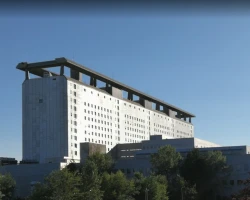
Munich, Germany
Specializations: Cardiac surgery, Vascular surgery, Thoracic surgery, Neurosurgery, Spine surgery, Orthopedic surgery, Oncology
With its two Munich locations, Campus Großhadern and Campus Downtown, is one of the largest university hospitals in Germany and Europe. Every year, around 500,000
read more
5
from Rita Lawrence
December 08, 2023
Got first-rate care, had a great experience and a positive outcome! Kudos to the Nurses, Doctors/Surgeons/Anasthesioligists, Physical Therapists, Dieticians/ Food Service, Fellows, Interns and Students.Special shout-out to my postoperative caregiver- Karina Valentine. She kept me going through the most challenging part of my surgical journey- enduring procedures to facilitate the OUT in outpatient. Lest we forget the unsung heroes that keep the hospital so hygienically safe and superior- I must now sing my praises to the custodial technicians: 🎶We could eat off of the floors But we don’t have to They give plates and forks Don’t spill dessert (I got strawberry shortcake 🍰)
1
from Linda Fish
November 14, 2023
Duke has reached a new low in Health Care. I'd give them stars in the minus categories if I could. My son had eye surgery and every time we went for an appointment we waited over 2 hours to be seen. I can tell you I read 150 pages of a book on one visit. We actually saw people leave without being seen because they had waited so long. My son objected to the long wait one day and was told by the surgeon that he was ruining her day. Because of the wait he asked to talk to the manager or an administrator. While waiting the police came made him leave because they said he raised his voice. He was not allowed to talk to the administrator and was escorted out. This is not the first problem we have had with Duke. My son was in the emergency room waiting for the specialist on call when the Emergency Doctor came in and told him that the specialist on call was already home and refused to come in to see him. We were told he should go to the specialist's off the next day. We did that and he was seen for less than 10 minutes and told to go back to another doctor. Seems the specialist could have cut through the chase and just told us that to begin with.
My impression is that almost every one in the hospital system is very impressed with themselves and seems to think it below them to interface and deal with patient who have some real problems. I can, in no way, recommend any Duke Service. I could continue with examples but it would sound repetitive.
I practiced Nursing for 45 years and never came up against any care that is this poor in quality. Giving them -5.
4
from Julianna perciballi
November 01, 2023
There is good and bad. I recently gave birth at Duke University Hospital and I want to say that my experience with Doctor Clifford, and nurses Lexi, Brenna, Tabitha, Josephine among others was phenomenal. I was blown away by the care and compassion I received so I will say it was a four star experience. However, I have one major complaint about the experience and feel it's important enough to try to voice it. The postnatal recovery rooms are terrible. They are the size of walk in closets and if you have a support person such as your husband staying with you, they have to sleep on what is essentially an airplane chair. My husband could not do it, and it made the end of my experience at Duke hard because I needed him there with me. I felt like me and my baby were locked in a cell and I was going crazy by the time I was discharged. Thank god I was discharged early. There were many people coming in and out of my closet those last few days and nights, and it was definitely too many people. After receiving an emergency C section, I felt I was improperly educated on the repercussions. I had no idea I would have trouble producing milk after my blood loss in surgery and I was not informed about any of the medication I was prescribed. Again, it would have helped if my husband could have been there because maybe I actually was given information but was too out of it for it to sink in.
Prices for popular procedures:
-
Patent ductus arteriosus (PDA) ligation in children
≈ $58,473
-
Patent ductus arteriosus (PDA) open heart surgery in adults
≈ $45,319
-
Transcatheter closure of patent ductus arteriosus (PDA) in adults
≈ $45,374
-
Coronary artery bypass graft (CABG)
≈ $137,815
-
Heart valve replacement
≈ $100,236
-
Heart valve repair
≈ $97,775
-
Aortic valve replacement (AVR)
≈ $151,045
-
Mitral valve replacement (MVR)
≈ $38,590
-
Transcatheter aortic valve replacement (TAVR)
≈ $97,020
3.4
5 reviews
5
from Rita Lawrence
December 08, 2023
Got first-rate care, had a great experience and a positive outcome! Kudos to the Nurses, Doctors/Surgeons/Anasthesioligists, Physical Therapists, Dieticians/ Food Service, Fellows, Interns and Students.Special shout-out to my postoperative caregiver- Karina Valentine. She kept me going through the most challenging part of my surgical journey- enduring procedures to facilitate the OUT in outpatient. Lest we forget the unsung heroes that keep the hospital so hygienically safe and superior- I must now sing my praises to the custodial technicians: 🎶We could eat off of the floors But we don’t have to They give plates and forks Don’t spill dessert (I got strawberry shortcake 🍰)
1
from Linda Fish
November 14, 2023
Duke has reached a new low in Health Care. I'd give them stars in the minus categories if I could. My son had eye surgery and every time we went for an appointment we waited over 2 hours to be seen. I can tell you I read 150 pages of a book on one visit. We actually saw people leave without being seen because they had waited so long. My son objected to the long wait one day and was told by the surgeon that he was ruining her day. Because of the wait he asked to talk to the manager or an administrator. While waiting the police came made him leave because they said he raised his voice. He was not allowed to talk to the administrator and was escorted out. This is not the first problem we have had with Duke. My son was in the emergency room waiting for the specialist on call when the Emergency Doctor came in and told him that the specialist on call was already home and refused to come in to see him. We were told he should go to the specialist's off the next day. We did that and he was seen for less than 10 minutes and told to go back to another doctor. Seems the specialist could have cut through the chase and just told us that to begin with.
My impression is that almost every one in the hospital system is very impressed with themselves and seems to think it below them to interface and deal with patient who have some real problems. I can, in no way, recommend any Duke Service. I could continue with examples but it would sound repetitive.
I practiced Nursing for 45 years and never came up against any care that is this poor in quality. Giving them -5.
4
from Julianna perciballi
November 01, 2023
There is good and bad. I recently gave birth at Duke University Hospital and I want to say that my experience with Doctor Clifford, and nurses Lexi, Brenna, Tabitha, Josephine among others was phenomenal. I was blown away by the care and compassion I received so I will say it was a four star experience. However, I have one major complaint about the experience and feel it's important enough to try to voice it. The postnatal recovery rooms are terrible. They are the size of walk in closets and if you have a support person such as your husband staying with you, they have to sleep on what is essentially an airplane chair. My husband could not do it, and it made the end of my experience at Duke hard because I needed him there with me. I felt like me and my baby were locked in a cell and I was going crazy by the time I was discharged. Thank god I was discharged early. There were many people coming in and out of my closet those last few days and nights, and it was definitely too many people. After receiving an emergency C section, I felt I was improperly educated on the repercussions. I had no idea I would have trouble producing milk after my blood loss in surgery and I was not informed about any of the medication I was prescribed. Again, it would have helped if my husband could have been there because maybe I actually was given information but was too out of it for it to sink in.
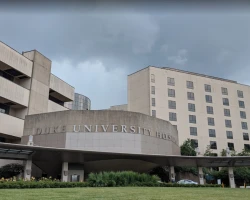
Durham, United States
Specializations: Cardiac surgery, Vascular surgery, Thoracic surgery, Neurosurgery, Spine surgery, Orthopedic surgery, Oncology
Languages: Arabic, Chinese, French, German, Gujarati, Hindi, Japanese, Korean, Lao, Russian, Vietnamese, Khmer, Spanish; Castilian
Duke University Hospital is consistently rated as one of the best hospitals in the United States and is known around the world for its outstanding
read more
5
from Tibor Kuna
September 23, 2023
Excellent staff and facilities. I have been to two rooms which had a smart TV that has Netflix among other things on it, which of course make the stay there pass quicker than otherwise. Other nice thing in the rooms i have been to is that they had a mini fridge in them.
1
from Jenya Baglyk
April 17, 2023
You get appointment for specific time and then you are waiting at least 40 minutes!!!! Today our appointment was at 3:40 p.m. Now 5:54 p.m. and we are still waiting!!!
And it's not for free!!! Bills they always sending on time.
We are leaving in 21th century where medicine service is not only about doctor doing his job right (and this is also a big question), it's about careful and respectful attitude to the patients!!! I'm paying for service and deserve to get my appointment ON TIME.
Didn't see worse hospital in Europe!!!
Never again Im coming here
5
from Lily Kerley
March 15, 2023
I visited Leuven as a traveller, and they were very helpful and fast. We waited no longer than 20 minutes to see a doctor and get blood tests. Thanks to the doctors and nurses for doing a great job.
Prices for popular procedures:
-
Patent ductus arteriosus (PDA) open heart surgery in adults
≈ $16,148
-
Transcatheter closure of patent ductus arteriosus (PDA) in adults
≈ $21,392
-
Dual chamber pacemaker insertion
≈ $18,832
-
Coronary artery bypass graft (CABG)
≈ $37,401
-
Heart valve replacement
≈ $41,282
-
Heart valve repair
≈ $45,108
-
Aortic valve replacement (AVR)
≈ $40,408
-
Mitral valve replacement (MVR)
≈ $34,070
-
Transcatheter aortic valve replacement (TAVR)
≈ $42,588
3.9
5 reviews
5
from Tibor Kuna
September 23, 2023
Excellent staff and facilities. I have been to two rooms which had a smart TV that has Netflix among other things on it, which of course make the stay there pass quicker than otherwise. Other nice thing in the rooms i have been to is that they had a mini fridge in them.
1
from Jenya Baglyk
April 17, 2023
You get appointment for specific time and then you are waiting at least 40 minutes!!!! Today our appointment was at 3:40 p.m. Now 5:54 p.m. and we are still waiting!!!
And it's not for free!!! Bills they always sending on time.
We are leaving in 21th century where medicine service is not only about doctor doing his job right (and this is also a big question), it's about careful and respectful attitude to the patients!!! I'm paying for service and deserve to get my appointment ON TIME.
Didn't see worse hospital in Europe!!!
Never again Im coming here
5
from Lily Kerley
March 15, 2023
I visited Leuven as a traveller, and they were very helpful and fast. We waited no longer than 20 minutes to see a doctor and get blood tests. Thanks to the doctors and nurses for doing a great job.

Leuven, Belgium
Specializations: Cardiac surgery, Vascular surgery, Thoracic surgery, Neurosurgery, Spine surgery, Orthopedic surgery, Oncology
UZ Leuven is a university hospital where patients can count on specialized care and innovative treatments, combined with human attention and respect for every person.
read more
5
from Tsgereda Bitew
April 22, 2023
Accidentally my mother is sick,she is a 3 month visitor,I called 112 , the crew came very fast ,they were very kind, professionally treated my mom and they helped me with language when we reached the hospital , the nurse, receptionist,the Dr all give professional service ,with smile in their face,I stayed almost 8 hours, they were very busy ,they receive now and then emergency sick people.i just can say ,God bless you all the time ,God give you healthy life as you help a sick people under God will.thank you very much to all Ak clinic crew ,l💕💕💕💕
1
from Grace E.
November 27, 2022
I was here two weeks ago as I cut my finger by accident. It was bleeding A LOT. Dripping onto the ER floor. Nobody cared until I had a panic attack. There was at least one good nurse with empathy. She was young and had black hair. Should have known her name.. The other middle aged nurse would mock me while passing, saying sth like she (obviously me) keeps crying and crying 😒 (with this face haha). I’m sure she thought I could not understand German only by looking at my appearance.
Anyway I waited for like at least four hours there. Okay, yes, I was not obviously dying and I knew that, but at least I wish I had known what was going on and all. And the ER was not busy at all. Like four patients before me, I think.
When I could finally get the x ray done, the woman in the x ray room was the WORST. My tendon was 100% cut so I could not move my finger. And yet, the incompetent woman tried to force my finger straighten up so hard and it gave me a lot worse pain than the one I had before going into the x ray room.
Anyway, in the end I got transferred to St. Georg’s Asklepios and got surgery for re connecting my tendon after a long waiting time. I don’t think my nerves were connected properly as I cannot feel right side of my finger very well. I’m visiting a different hand surgeon at a different praxis. If this symptom persists, I’m getting the check up outside of Germany.
Just like one review I have read here, I would rather just die (lol, with a bit of exaggeration) or fly to my home country with better health service if necessary. Even Cambodia had a better hospital, where I had to visit because of anaphylaxis during my travel there.
5
from Carlos
January 14, 2022
Very friendly staff overall. I came here to get my booster shot and I was at the wrong building, the security guy showed me where I needed to go. Then at the vaccination facility, the doctors were very helpful and informative.
Prices for popular procedures:
-
Patent ductus arteriosus (PDA) open heart surgery in adults
≈ $24,920
-
Transcatheter closure of patent ductus arteriosus (PDA) in adults
≈ $27,539
-
Dual chamber pacemaker insertion
≈ $21,420
-
Coronary artery bypass graft (CABG)
≈ $46,654
-
Heart valve replacement
≈ $75,268
-
Heart valve repair
≈ $57,619
-
Aortic valve replacement (AVR)
≈ $52,871
-
Mitral valve replacement (MVR)
≈ $57,570
-
Transcatheter aortic valve replacement (TAVR)
≈ $139,039
2.7
5 reviews
5
from Tsgereda Bitew
April 22, 2023
Accidentally my mother is sick,she is a 3 month visitor,I called 112 , the crew came very fast ,they were very kind, professionally treated my mom and they helped me with language when we reached the hospital , the nurse, receptionist,the Dr all give professional service ,with smile in their face,I stayed almost 8 hours, they were very busy ,they receive now and then emergency sick people.i just can say ,God bless you all the time ,God give you healthy life as you help a sick people under God will.thank you very much to all Ak clinic crew ,l💕💕💕💕
1
from Grace E.
November 27, 2022
I was here two weeks ago as I cut my finger by accident. It was bleeding A LOT. Dripping onto the ER floor. Nobody cared until I had a panic attack. There was at least one good nurse with empathy. She was young and had black hair. Should have known her name.. The other middle aged nurse would mock me while passing, saying sth like she (obviously me) keeps crying and crying 😒 (with this face haha). I’m sure she thought I could not understand German only by looking at my appearance.
Anyway I waited for like at least four hours there. Okay, yes, I was not obviously dying and I knew that, but at least I wish I had known what was going on and all. And the ER was not busy at all. Like four patients before me, I think.
When I could finally get the x ray done, the woman in the x ray room was the WORST. My tendon was 100% cut so I could not move my finger. And yet, the incompetent woman tried to force my finger straighten up so hard and it gave me a lot worse pain than the one I had before going into the x ray room.
Anyway, in the end I got transferred to St. Georg’s Asklepios and got surgery for re connecting my tendon after a long waiting time. I don’t think my nerves were connected properly as I cannot feel right side of my finger very well. I’m visiting a different hand surgeon at a different praxis. If this symptom persists, I’m getting the check up outside of Germany.
Just like one review I have read here, I would rather just die (lol, with a bit of exaggeration) or fly to my home country with better health service if necessary. Even Cambodia had a better hospital, where I had to visit because of anaphylaxis during my travel there.
5
from Carlos
January 14, 2022
Very friendly staff overall. I came here to get my booster shot and I was at the wrong building, the security guy showed me where I needed to go. Then at the vaccination facility, the doctors were very helpful and informative.

Harburg, Germany
Specializations: Cardiac surgery, Vascular surgery, Thoracic surgery, Neurosurgery, Spine surgery, Orthopedic surgery, Oncology
Asklepios Klinikum Harburg is an academic teaching hospital of Universitätsklinik Hamburg-Eppendorf, Germany. The main building contains a state of the art emergency department, as well
read more
5
from Olivier Jouglet
November 28, 2023
Meeting with Doctor G Lefebvre, I was received like a king, secretary, the doctor and the nurse who took my blood test very welcoming and very very simple I have never had such a welcome in a hospital from Valenciennois...It's good to see that there are people who love their job..Thank you..
2
from Pascale
November 16, 2023
Dated, small, unwelcoming rooms.
Unpleasant staff, you have the impression of annoying them all the time. You have to beg for information or even get angry to get it. Little consideration of the patient, their pain, their dignity. In our time, this is unacceptable.
5
from Jamila Kiki
November 03, 2023
Followed since 2011 in Professor Pattou's department, the only hospital where I feel calm when I know that I have a hospital appointment even if it is currently for IVs and injections 🤣. A really great team. More than adorable nurses. Thank you very much for your kindness, your listening and your good hearts, you are all at the top 🥰🥰. All hospitals should have your patience and sympathy ❤️
Prices for popular procedures:
-
Patent ductus arteriosus (PDA) ligation in children
≈ $16,229
-
Patent ductus arteriosus (PDA) open heart surgery in adults
≈ $5,031
-
Transcatheter closure of patent ductus arteriosus (PDA) in adults
≈ $8,161
-
Dual chamber pacemaker insertion
≈ $10,663
-
Coronary artery bypass graft (CABG)
≈ $36,492
-
Heart valve replacement
≈ $45,705
-
Heart valve repair
≈ $34,176
-
Aortic valve replacement (AVR)
≈ $42,973
-
Mitral valve replacement (MVR)
≈ $31,394
3.6
5 reviews
5
from Olivier Jouglet
November 28, 2023
Meeting with Doctor G Lefebvre, I was received like a king, secretary, the doctor and the nurse who took my blood test very welcoming and very very simple I have never had such a welcome in a hospital from Valenciennois...It's good to see that there are people who love their job..Thank you..
2
from Pascale
November 16, 2023
Dated, small, unwelcoming rooms.
Unpleasant staff, you have the impression of annoying them all the time. You have to beg for information or even get angry to get it. Little consideration of the patient, their pain, their dignity. In our time, this is unacceptable.
5
from Jamila Kiki
November 03, 2023
Followed since 2011 in Professor Pattou's department, the only hospital where I feel calm when I know that I have a hospital appointment even if it is currently for IVs and injections 🤣. A really great team. More than adorable nurses. Thank you very much for your kindness, your listening and your good hearts, you are all at the top 🥰🥰. All hospitals should have your patience and sympathy ❤️
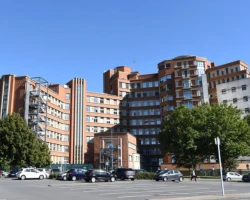
Lille, France
Specializations: Cardiac surgery, Vascular surgery, Thoracic surgery, Neurosurgery, Spine surgery, Orthopedic surgery, Oncology
With a community of nearly 16,000 professionals, the Lille University Hospital is one of the largest health campuses in northern Europe. A referral and
read more
5
from Arshia Bahrami.m
November 21, 2023
They were really kind, respectful and fast. The main doctor spoke English great!
We went to the emergency room on Sunday, but they were fully ready!
Thanks
1
from Oscar Sarmiento
August 20, 2023
They should say it's closed on sundays, I walked around all the hospital surroundings trying to find an entrance over 40 minutes walking and nothing, every single gate was closed had a medical emergency.....
1
from Kala Chapman
August 03, 2023
It's a massive/impersonal hospital so I shouldn't have expected much. My first interaction was booking the appointment (waited over 2 hours to do so), upon which I approached the sportello and the woman just stared at me - literally no words. As I asked for the appointment to be booked, she took my paperwork without saying anything, printed out the confirmation and still said nothing - not even an explanation of when, where the appointment was, etc. I have never had such an intensely impersonal and rude interaction (or lack thereof lol) for something so nervewracking. Really not looking forward to the actual appointment with the doctor if this is what the staff is like. Awful. You'd think someone working in a hospital would even *attempt* to have an ounce of empathy, but no not here.
Prices for popular procedures:
-
Patent ductus arteriosus (PDA) ligation in children
≈ $32,951
-
Patent ductus arteriosus (PDA) open heart surgery in adults
≈ $13,164
-
Transcatheter closure of patent ductus arteriosus (PDA) in adults
≈ $22,980
-
Dual chamber pacemaker insertion
≈ $16,549
-
Coronary artery bypass graft (CABG)
≈ $43,709
-
Off-pump coronary artery bypass surgery
≈ $48,116
-
Fontan procedure
≈ $31,793
-
Permanent pacemaker implantation
≈ $13,881
-
Radiofrequency ablation (RFA)
≈ $12,691
3.7
5 reviews
5
from Arshia Bahrami.m
November 21, 2023
They were really kind, respectful and fast. The main doctor spoke English great!
We went to the emergency room on Sunday, but they were fully ready!
Thanks
1
from Oscar Sarmiento
August 20, 2023
They should say it's closed on sundays, I walked around all the hospital surroundings trying to find an entrance over 40 minutes walking and nothing, every single gate was closed had a medical emergency.....
1
from Kala Chapman
August 03, 2023
It's a massive/impersonal hospital so I shouldn't have expected much. My first interaction was booking the appointment (waited over 2 hours to do so), upon which I approached the sportello and the woman just stared at me - literally no words. As I asked for the appointment to be booked, she took my paperwork without saying anything, printed out the confirmation and still said nothing - not even an explanation of when, where the appointment was, etc. I have never had such an intensely impersonal and rude interaction (or lack thereof lol) for something so nervewracking. Really not looking forward to the actual appointment with the doctor if this is what the staff is like. Awful. You'd think someone working in a hospital would even *attempt* to have an ounce of empathy, but no not here.
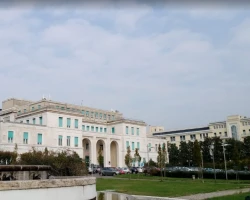
Milan, Italy
Specializations: Cardiac surgery, Vascular surgery, Thoracic surgery, Neurosurgery, Spine surgery, Orthopedic surgery, Oncology
Niguarda is a large metropolitan hospital with social and health skills for territorial care . Home to all clinical and surgical specialties for adults and
read more
5
from M D
December 07, 2023
My name is Minal and I was hospitalised at UCLH from 21st October 2023 until 28th October 2023 with a nasty infection. I was put on sepsis protocol and I was eventually diagnosed with abscesses. The care and treatment I received from the time I arrived at A&E until I was discharged was exceptional.
I was in such a bad state that I cannot remember all the names of the staff who looked after me, but I have to mention the nurse in A&E majors, Davinia Sabater Guijarro, as she took care of me with a lot of kindness and compassion. She was brilliant!
Eventually, I was admitted to medical ward only briefly and then gynaecology ward. Nurse Reena from the medical ward was very kind, although I was only there for a very short time. Some of the nurses on gynaecology ward who looked after me were Nurse Erlou, Nurse Sidikat, Nurse Jordine, Nurse Kawser, Nurse Olu, Nurse Nishma, Nurse Bushirah, Nurse Antonio, HCA Maureen, Ward physio Bethany and many other nurses and healthcare assistants to whom I am very grateful to for the care and support they gave me whilst I was on that ward.
The Gynaecology team led by Dr Naaila Aslam were fantastic and I feel that I am here and alive today because of them. My local hospital had sent me away with Trimethoprim and a wrong diagnosis just the previous day. Had I not gone to UCLH that Saturday evening, I wouldn't have made it, as my CRP was 400 and I was septic. Thank you to Dr Aslam and her team including Dr De Braud, Dr Tatiana, Dr Neha, Dr Julie, Dr Omar, Dr Hannah, Dr Alison and everyone in that team. They saved my life!
When I had my procedure to drain the abscess, the nurses were so supportive including nurse Kit and nurse Emma. There were other nurses in that room too, but I don't recall all the names. All were wonderful. I would not have got through that procedure without their words of support and encouragement, in particular Nurse Kit and Nurse Emma.
I hope the above mentioned staff and anyone who looked after me reads this review. I am forever grateful to them.
UPDATE (5th December 2023): I spent a further two nights at UCH when the infection returned. Lots of wonderful nurses and healthcare assistants in A&E majors and same day emergency care (thank you Dr Maria Marouli and Nurse Jennifer). Another positive experience on gynae ward. Nurses Warda, Queen, Alena and Clare were all very kind, attentive and extremely competent.
4
from W Huang
December 07, 2023
There were so many patients in the A&E, i suffered with severe pain with kidney stone sym on Wednesday night 08/12/2023,staffs are well trained and doctors and nurses are very helpful. I had my CT scan and blood test results with in two hours. specially thanks to Dr. Bolloju and Dr. Galica, they are such nice doctors showed their professionalism, kindness, caring and excellent management skills.
5
from Jiji
November 28, 2023
Amazing service was feeling really unwell seen unbelievably quickly. The doctors and nurses were great very sympathetic and understanding. I attended the emergency day care Dr Johnny and dr harder also his staff were great provided a really immaculate service. The hospital is clean and well kept thank you all
Prices for popular procedures:
-
Patent ductus arteriosus (PDA) open heart surgery in adults
≈ $18,756
-
Transcatheter closure of patent ductus arteriosus (PDA) in adults
≈ $24,672
-
Dual chamber pacemaker insertion
≈ $17,863
-
Coronary artery bypass graft (CABG)
≈ $51,750
-
Heart valve replacement
≈ $56,723
-
Heart valve repair
≈ $56,045
-
Aortic valve replacement (AVR)
≈ $64,810
-
Mitral valve replacement (MVR)
≈ $44,496
-
Transcatheter aortic valve replacement (TAVR)
≈ $94,315
3.6
5 reviews
5
from M D
December 07, 2023
My name is Minal and I was hospitalised at UCLH from 21st October 2023 until 28th October 2023 with a nasty infection. I was put on sepsis protocol and I was eventually diagnosed with abscesses. The care and treatment I received from the time I arrived at A&E until I was discharged was exceptional.
I was in such a bad state that I cannot remember all the names of the staff who looked after me, but I have to mention the nurse in A&E majors, Davinia Sabater Guijarro, as she took care of me with a lot of kindness and compassion. She was brilliant!
Eventually, I was admitted to medical ward only briefly and then gynaecology ward. Nurse Reena from the medical ward was very kind, although I was only there for a very short time. Some of the nurses on gynaecology ward who looked after me were Nurse Erlou, Nurse Sidikat, Nurse Jordine, Nurse Kawser, Nurse Olu, Nurse Nishma, Nurse Bushirah, Nurse Antonio, HCA Maureen, Ward physio Bethany and many other nurses and healthcare assistants to whom I am very grateful to for the care and support they gave me whilst I was on that ward.
The Gynaecology team led by Dr Naaila Aslam were fantastic and I feel that I am here and alive today because of them. My local hospital had sent me away with Trimethoprim and a wrong diagnosis just the previous day. Had I not gone to UCLH that Saturday evening, I wouldn't have made it, as my CRP was 400 and I was septic. Thank you to Dr Aslam and her team including Dr De Braud, Dr Tatiana, Dr Neha, Dr Julie, Dr Omar, Dr Hannah, Dr Alison and everyone in that team. They saved my life!
When I had my procedure to drain the abscess, the nurses were so supportive including nurse Kit and nurse Emma. There were other nurses in that room too, but I don't recall all the names. All were wonderful. I would not have got through that procedure without their words of support and encouragement, in particular Nurse Kit and Nurse Emma.
I hope the above mentioned staff and anyone who looked after me reads this review. I am forever grateful to them.
UPDATE (5th December 2023): I spent a further two nights at UCH when the infection returned. Lots of wonderful nurses and healthcare assistants in A&E majors and same day emergency care (thank you Dr Maria Marouli and Nurse Jennifer). Another positive experience on gynae ward. Nurses Warda, Queen, Alena and Clare were all very kind, attentive and extremely competent.
4
from W Huang
December 07, 2023
There were so many patients in the A&E, i suffered with severe pain with kidney stone sym on Wednesday night 08/12/2023,staffs are well trained and doctors and nurses are very helpful. I had my CT scan and blood test results with in two hours. specially thanks to Dr. Bolloju and Dr. Galica, they are such nice doctors showed their professionalism, kindness, caring and excellent management skills.
5
from Jiji
November 28, 2023
Amazing service was feeling really unwell seen unbelievably quickly. The doctors and nurses were great very sympathetic and understanding. I attended the emergency day care Dr Johnny and dr harder also his staff were great provided a really immaculate service. The hospital is clean and well kept thank you all

London, United Kingdom
Specializations: Cardiac surgery, Vascular surgery, Thoracic surgery, Neurosurgery, Spine surgery, Orthopedic surgery, Oncology
A new hospital with state-of-the-art facilities using cutting edge technology, with spectacular views across London, University College Hospital is located on Euston Road,
read more
5
from Chiamaka Chinedum
August 17, 2023
Good health care
4
from Jani Hakonen
November 10, 2022
Mostly positive attitude. Good health care.
5
from Juha Vuorinen
November 19, 2019
The best
Prices for popular procedures:
-
Patent ductus arteriosus (PDA) ligation in children
≈ $45,888
-
Patent ductus arteriosus (PDA) open heart surgery in adults
≈ $23,722
-
Transcatheter closure of patent ductus arteriosus (PDA) in adults
≈ $30,362
-
Dual chamber pacemaker insertion
≈ $22,576
-
Coronary artery bypass graft (CABG)
≈ $57,683
-
Heart valve replacement
≈ $58,797
-
Heart valve repair
≈ $72,350
-
Aortic valve replacement (AVR)
≈ $82,158
-
Mitral valve replacement (MVR)
≈ $50,420
4.2
5 reviews
5
from Chiamaka Chinedum
August 17, 2023
Good health care
4
from Jani Hakonen
November 10, 2022
Mostly positive attitude. Good health care.
5
from Juha Vuorinen
November 19, 2019
The best

Turku, Finland
Specializations: Cardiac surgery, Vascular surgery, Thoracic surgery, Neurosurgery, Spine surgery, Orthopedic surgery, Oncology
In the area of Tyksin Main Hospital, there are A, U and T hospitals, Lighthouse Hospital and several other buildings with patient reception and treatment
read more
1
from so ka
September 08, 2023
Waiting times of more than 9 hours!! Cannot recommend going there if there is any other option. Absolutely understaffed. No air conditioning in the waiting room. The vending machine only takes coins, therefore big risk for dehydration. Haven’t had a worse experience in a hospital ever.
5
from P B
September 01, 2023
Being a tourist in Bologna and having to attend Pronto Soccorso was daunting, however my experience of the treatment I received was first class. Most of the staff spoke English at a level that I could understand what was happening regarding my treatment, from doctors to porters. I am very grateful for the medical care that was provided during a time of stress and pain.
1
from Berk Can
June 28, 2023
Bizzare standarts for European Hospital, emergency waits are due 6 to 12 hours.Shortage of staff is visible and maintenance of the hospital is bad, terrible experience.Shocking
Prices for popular procedures:
-
Patent ductus arteriosus (PDA) ligation in children
≈ $32,951
-
Patent ductus arteriosus (PDA) open heart surgery in adults
≈ $13,164
-
Transcatheter closure of patent ductus arteriosus (PDA) in adults
≈ $22,980
-
Dual chamber pacemaker insertion
≈ $16,549
-
Coronary artery bypass graft (CABG)
≈ $43,709
-
Heart valve replacement
≈ $47,898
-
Heart valve repair
≈ $51,153
-
Aortic valve replacement (AVR)
≈ $49,030
-
Mitral valve replacement (MVR)
≈ $39,775
4.0
5 reviews
1
from so ka
September 08, 2023
Waiting times of more than 9 hours!! Cannot recommend going there if there is any other option. Absolutely understaffed. No air conditioning in the waiting room. The vending machine only takes coins, therefore big risk for dehydration. Haven’t had a worse experience in a hospital ever.
5
from P B
September 01, 2023
Being a tourist in Bologna and having to attend Pronto Soccorso was daunting, however my experience of the treatment I received was first class. Most of the staff spoke English at a level that I could understand what was happening regarding my treatment, from doctors to porters. I am very grateful for the medical care that was provided during a time of stress and pain.
1
from Berk Can
June 28, 2023
Bizzare standarts for European Hospital, emergency waits are due 6 to 12 hours.Shortage of staff is visible and maintenance of the hospital is bad, terrible experience.Shocking

Bologna, Italy
Specializations: Cardiac surgery, Vascular surgery, Thoracic surgery, Neurosurgery, Spine surgery, Orthopedic surgery, Oncology
The IRCCS University Hospital of Bologna Policlinico S. Orsola is a very old hospital (the first nucleus dates back to 1592) and is the seat
read more
1
from S. Valérie
November 30, 2023
MESSAGE FROM AN ANGRY MOM. WHAT A SHAME !
TO BE RECEIVED IN THE EMERGENCY, YOU MUST HAVE AN APPOINTMENT.
FOR ACUTE KNEE PAIN, WHICH MAKES WALKING VERY DIFFICULT, YOU DISMISS THE PATIENT BECAUSE HE DID NOT TAKE IBUPROFEN!
NO CONSULTATION, REQUEST TO SEND A PHOTO OF THE KNEE TO CONTACT 1 HOUR LATER, FOR A DIAGNOSTIC. IT’S A JOKE !!!!
AND TO LEARN THAT YOU REFUSED A PATIENT WITH AN EAR INFECTION AND THAT HE MAY HAVE TO LOSE TYMPAN (WHAT HIS DOCTOR TOLD HIM THE FOLLOWING DAY) AND THAT ANOTHER PATIENT WAS REFUSED DESPITE AN OPENING WOUND ON HIS HEAD.
IF THE PATIENT WERE MIGRANTS, THEY WOULD HAVE BEEN WELCOME WITH WIDE OPEN ARMS.
1
from Paula Muniz
August 15, 2023
Had terrible pain that went from my jaw through my ear and to my head for a few days. I decided to wait until to see if it would go away, but it didn’t. Since it was a Sunday and the pain was interfering with my day to day life, I decided to call to get some advice. I was treated really well on the phone and was told to come in later that day. Once I met the doctor, it was a different story. No interest in helping me at all, told me it’s a pity I’m in pain and haven’t been able to sleep but it’s not her problem, this isn’t an emergency. Turns out I had two infected wisdom teeth. Be wary of their advice… I was lucky my GP told me to run to the dentist. 3 surgeries later and I’m in no more pain.
1
from Facundo Stanić
July 10, 2023
Lack of experienced professionals. Appointments with a year delay. Wrong assessments and rude stuff. It’s better to go to Belgium or Germany for better treatment. They don’t take their patients serious at all
Prices for popular procedures:
-
Patent ductus arteriosus (PDA) ligation in children
≈ $21,102
-
Patent ductus arteriosus (PDA) open heart surgery in adults
≈ $13,957
-
Transcatheter closure of patent ductus arteriosus (PDA) in adults
≈ $18,343
-
Dual chamber pacemaker insertion
≈ $12,498
-
Coronary artery bypass graft (CABG)
≈ $18,735
-
Heart valve replacement
≈ $53,806
-
Heart valve repair
≈ $36,933
-
Aortic valve replacement (AVR)
≈ $55,646
-
Mitral valve replacement (MVR)
≈ $37,645
3.9
5 reviews
1
from S. Valérie
November 30, 2023
MESSAGE FROM AN ANGRY MOM. WHAT A SHAME !
TO BE RECEIVED IN THE EMERGENCY, YOU MUST HAVE AN APPOINTMENT.
FOR ACUTE KNEE PAIN, WHICH MAKES WALKING VERY DIFFICULT, YOU DISMISS THE PATIENT BECAUSE HE DID NOT TAKE IBUPROFEN!
NO CONSULTATION, REQUEST TO SEND A PHOTO OF THE KNEE TO CONTACT 1 HOUR LATER, FOR A DIAGNOSTIC. IT’S A JOKE !!!!
AND TO LEARN THAT YOU REFUSED A PATIENT WITH AN EAR INFECTION AND THAT HE MAY HAVE TO LOSE TYMPAN (WHAT HIS DOCTOR TOLD HIM THE FOLLOWING DAY) AND THAT ANOTHER PATIENT WAS REFUSED DESPITE AN OPENING WOUND ON HIS HEAD.
IF THE PATIENT WERE MIGRANTS, THEY WOULD HAVE BEEN WELCOME WITH WIDE OPEN ARMS.
1
from Paula Muniz
August 15, 2023
Had terrible pain that went from my jaw through my ear and to my head for a few days. I decided to wait until to see if it would go away, but it didn’t. Since it was a Sunday and the pain was interfering with my day to day life, I decided to call to get some advice. I was treated really well on the phone and was told to come in later that day. Once I met the doctor, it was a different story. No interest in helping me at all, told me it’s a pity I’m in pain and haven’t been able to sleep but it’s not her problem, this isn’t an emergency. Turns out I had two infected wisdom teeth. Be wary of their advice… I was lucky my GP told me to run to the dentist. 3 surgeries later and I’m in no more pain.
1
from Facundo Stanić
July 10, 2023
Lack of experienced professionals. Appointments with a year delay. Wrong assessments and rude stuff. It’s better to go to Belgium or Germany for better treatment. They don’t take their patients serious at all

Maastricht, Netherlands
Specializations: Cardiac surgery, Vascular surgery, Thoracic surgery, Neurosurgery, Spine surgery, Orthopedic surgery, Oncology
Languages: English, German
Maastricht University Medical Center+ is known both nationally and internationally for its focus on prevention and taking an integrated approach to health care: from prevention,
read more
4
from Joost Helberg
August 25, 2023
Apart from the confusing way the floors are numbered, this hospital is the best there is in the Netherlands.
1
from sofia sb
November 07, 2022
I went whining in pain and they seemed annoyed by that then told me I had to had an appointment to have an emergency and gave a phone number then proceeded to talk to each other in Dutch and stopped recognizing my presence, worst hospital EVER
1
from Carlotta Borre
May 26, 2022
I’m an international student and I didn’t know how the health care here in the Netherlands works. I have a lump in my throat that makes me feel I can’t breathe. Since in my country (Italy) you can always get assistance I went to the emergency department because I was worried about my thyroid problem and I couldn’t wait until may 30th for the GP.
I explained my problem and two nurses were really frustrated and rude, one of them laughed at me by saying “oh you can walk and speak, is it an emergency for you?”, another one: “are you an international student? I knew it!!! you international students always come here for EVERYTHING”.
I know I was supposed to do a quick Google before going but I was really worried and they could have said those things in a different way.
I give 5 stars to the third nurse that explained to me in a really polite way what to do.
Prices for popular procedures:
-
Patent ductus arteriosus (PDA) ligation in children
≈ $21,102
-
Patent ductus arteriosus (PDA) open heart surgery in adults
≈ $13,957
-
Transcatheter closure of patent ductus arteriosus (PDA) in adults
≈ $18,343
-
Dual chamber pacemaker insertion
≈ $12,498
-
Coronary artery bypass graft (CABG)
≈ $18,735
-
Heart valve replacement
≈ $53,806
-
Heart valve repair
≈ $36,933
-
Aortic valve replacement (AVR)
≈ $55,646
-
Mitral valve replacement (MVR)
≈ $37,645
4.1
5 reviews
4
from Joost Helberg
August 25, 2023
Apart from the confusing way the floors are numbered, this hospital is the best there is in the Netherlands.
1
from sofia sb
November 07, 2022
I went whining in pain and they seemed annoyed by that then told me I had to had an appointment to have an emergency and gave a phone number then proceeded to talk to each other in Dutch and stopped recognizing my presence, worst hospital EVER
1
from Carlotta Borre
May 26, 2022
I’m an international student and I didn’t know how the health care here in the Netherlands works. I have a lump in my throat that makes me feel I can’t breathe. Since in my country (Italy) you can always get assistance I went to the emergency department because I was worried about my thyroid problem and I couldn’t wait until may 30th for the GP.
I explained my problem and two nurses were really frustrated and rude, one of them laughed at me by saying “oh you can walk and speak, is it an emergency for you?”, another one: “are you an international student? I knew it!!! you international students always come here for EVERYTHING”.
I know I was supposed to do a quick Google before going but I was really worried and they could have said those things in a different way.
I give 5 stars to the third nurse that explained to me in a really polite way what to do.

Utrecht, Netherlands
Specializations: Cardiac surgery, Vascular surgery, Thoracic surgery, Neurosurgery, Spine surgery, Orthopedic surgery, Oncology
Since everyone deserves the best possible healthcare, UMC Utrecht always sets the bar high. The result: innovative, cutting-edge medical treatment that meets the healthcare needs
read more
1
from Nicky
October 22, 2023
Will never ever come to this hospital. Arrived at the hospital today with my baby having high fever. They told me there is no doctor and to call the ambulance. Called the ambulance and end up the ambulance referred us to the doctor in this hospital. Ambulance took baby temperature and blood pressure. We went into the emergency room and did a Covid test for baby. Very tough towards baby, swab baby nose till bleed and told us it’s normal. No doctor came to see us at all. Just a nurse came to speak to us and told us to monitor baby. Nurse didn’t even do a check up for our baby ended up paying $400 USD for consultation and emergency room! No check up done on baby and no medication given. I guess they don’t like doing foreigner business. Disappointed in Japan healthcare. Baby is still running a 39 degree high fever and we were told to pay and leave. Ridiculous
1
from Paljor Tsering
June 24, 2023
Literally the worst hospital i have ever visited.
I waited for 4 hours straight and when I asked how long I needed to wait, the doctors just simply said she has no idea, and just change a hospital if you don’t have time.
So cold.
I think anyone who went there as foreigners could understand what I am talking about.
Honestly, i don’t even wanna give one star.
5
from Kyoko Kirigiri
June 17, 2023
I'm here as an inpatient. Everyone is pretty nice and they have pretty much everything you would need. Don't feel afraid to come here. My teacher also said he comes here regularly for checkups and that he likes it and it has a good reputation.
Prices for popular procedures:
-
Patent ductus arteriosus (PDA) open heart surgery in adults
≈ $10,469
-
Dual chamber pacemaker insertion
≈ $15,968
-
Coronary artery bypass graft (CABG)
≈ $43,518
-
Heart valve replacement
≈ $54,023
-
Heart valve repair
≈ $40,257
-
Aortic valve replacement (AVR)
≈ $64,078
-
Mitral valve replacement (MVR)
≈ $52,185
-
Transcatheter aortic valve replacement (TAVR)
≈ $89,089
-
Off-pump coronary artery bypass surgery
≈ $33,519
3.6
5 reviews
1
from Nicky
October 22, 2023
Will never ever come to this hospital. Arrived at the hospital today with my baby having high fever. They told me there is no doctor and to call the ambulance. Called the ambulance and end up the ambulance referred us to the doctor in this hospital. Ambulance took baby temperature and blood pressure. We went into the emergency room and did a Covid test for baby. Very tough towards baby, swab baby nose till bleed and told us it’s normal. No doctor came to see us at all. Just a nurse came to speak to us and told us to monitor baby. Nurse didn’t even do a check up for our baby ended up paying $400 USD for consultation and emergency room! No check up done on baby and no medication given. I guess they don’t like doing foreigner business. Disappointed in Japan healthcare. Baby is still running a 39 degree high fever and we were told to pay and leave. Ridiculous
1
from Paljor Tsering
June 24, 2023
Literally the worst hospital i have ever visited.
I waited for 4 hours straight and when I asked how long I needed to wait, the doctors just simply said she has no idea, and just change a hospital if you don’t have time.
So cold.
I think anyone who went there as foreigners could understand what I am talking about.
Honestly, i don’t even wanna give one star.
5
from Kyoko Kirigiri
June 17, 2023
I'm here as an inpatient. Everyone is pretty nice and they have pretty much everything you would need. Don't feel afraid to come here. My teacher also said he comes here regularly for checkups and that he likes it and it has a good reputation.

Tokyo, Japan
Specializations: Cardiac surgery, Vascular surgery, Thoracic surgery, Neurosurgery, Spine surgery, Orthopedic surgery, Oncology
Languages: Chinese, English, Vietnamese
Center Hospital of the National Center for Global Health and Medicine, National Research and Development Agency. Center Hospital of NCGM provides optimum comprehensive healthcare in
read more
1
from Elodie Lecat
November 27, 2023
I had my MRI there and the purpose was to look for a serious condition. The neurosurgeon barely answered any questions and I had to force him to look at my MRI. It was shocking ! He also refused to write a report for my rheumatologist. I've never seen this. My rheumatologist had to ask for a report to another radiologist and finally we pinpoint the disease !! This behavior is unacceptable and the last time I checked MRI cost me 1 000 $ ! The minimum he could do was to spend 10 minutes to explain me !
5
from Eric Constantino
November 22, 2023
Had an exhilarating stroll around Yonsei campus. There's a bookstore for souvenir university items. Most K dramas have scenes around the campus. Very scenic. A must visit place even for first timers in Korea.
5
from A
November 11, 2023
Great experience as an international traveller. Doctors speak English and tests were done in a swift manner. My travel insurance company worked quickly to make payment so I wasn’t out of pocket.
Prices for popular procedures:
-
Patent ductus arteriosus (PDA) ligation in children
≈ $38,171
-
Patent ductus arteriosus (PDA) open heart surgery in adults
≈ $24,798
-
Transcatheter closure of patent ductus arteriosus (PDA) in adults
≈ $32,173
-
Dual chamber pacemaker insertion
≈ $22,437
-
Coronary artery bypass graft (CABG)
≈ $57,679
-
Heart valve replacement
≈ $48,656
-
Heart valve repair
≈ $57,114
-
Aortic valve replacement (AVR)
≈ $59,739
-
Mitral valve replacement (MVR)
≈ $47,022
3.7
5 reviews
1
from Elodie Lecat
November 27, 2023
I had my MRI there and the purpose was to look for a serious condition. The neurosurgeon barely answered any questions and I had to force him to look at my MRI. It was shocking ! He also refused to write a report for my rheumatologist. I've never seen this. My rheumatologist had to ask for a report to another radiologist and finally we pinpoint the disease !! This behavior is unacceptable and the last time I checked MRI cost me 1 000 $ ! The minimum he could do was to spend 10 minutes to explain me !
5
from Eric Constantino
November 22, 2023
Had an exhilarating stroll around Yonsei campus. There's a bookstore for souvenir university items. Most K dramas have scenes around the campus. Very scenic. A must visit place even for first timers in Korea.
5
from A
November 11, 2023
Great experience as an international traveller. Doctors speak English and tests were done in a swift manner. My travel insurance company worked quickly to make payment so I wasn’t out of pocket.
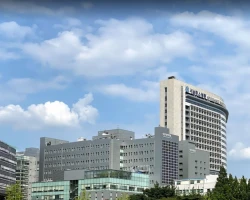
Seoul, South Korea
Specializations: Cardiac surgery, Vascular surgery, Thoracic surgery, Neurosurgery, Spine surgery, Orthopedic surgery, Oncology
Languages: Arabic, Chinese, English, Japanese, Mongolian, Russian
Severance Hospital was thecountry’s first western-stylehospital named Chejungwon. Severance Hospital, founded in 1885 by Dr. H. N. Allen, was the country’s first western-style hospital named
read more
5
from Arvin Tirk
August 21, 2020
It’s a clean and a well managed facility with friendly officers and doctors. I highly recommend this facility if anyone wants a medical examination done for visa purpose.
Prices for popular procedures:
-
Patent ductus arteriosus (PDA) open heart surgery in adults
≈ $24,798
-
Transcatheter closure of patent ductus arteriosus (PDA) in adults
≈ $32,173
-
Coronary artery bypass graft (CABG)
≈ $57,679
-
Heart valve replacement
≈ $48,656
-
Heart valve repair
≈ $57,114
-
Aortic valve replacement (AVR)
≈ $59,739
-
Mitral valve replacement (MVR)
≈ $47,022
-
Transcatheter aortic valve replacement (TAVR)
≈ $82,043
-
Off-pump coronary artery bypass surgery
≈ $59,245
5.0
1 reviews
5
from Arvin Tirk
August 21, 2020
It’s a clean and a well managed facility with friendly officers and doctors. I highly recommend this facility if anyone wants a medical examination done for visa purpose.
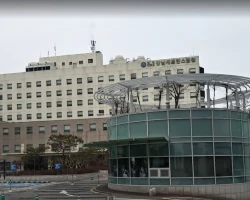
Seoul, South Korea
Specializations: Cardiac surgery, Vascular surgery, Thoracic surgery, Neurosurgery, Spine surgery, Orthopedic surgery, Oncology
Languages: Arabic, Chinese, English, Japanese, Russian
Gangnam Severance Hospital was opened in 1983 by Yonsei University Health System to expand its medical business and establish a stronghold for healthcare delivery in
read more
3
from Kelly K
June 11, 2022
Visited Severance hospital to treat an unknown issue on my toe in 2021. It was not treated properly for over 6 months and during that time I visited the dermatology department weekly to ‘treat’ it with laser removal and surgical skin removal. After 6 months of repeated treatments and not improving, they tested the problem. (Yes the first test) The issue they were treating (bacteria) was different from what they had been treating thus far. Saw a slight improvement but the doctor change resulted in the decision to removal part of the nail. The nail was removed and since then have encountered more issues due to the first doctor’s mishaps.
The nursing staff was kind throughout the experience which is why I am giving this review 3 stars. The doctors lack of knowledge on this issue and repeated issues (pain, treatment of the wrong problems) without admitting her wrongdoing caused me extreme stress, pain and damage to my foot.
It felt as this hospital was out to make money. The lack of treatment (in a timely manner) can cause long term damages and suffering. Although the doctors have changed, the Yongin branch does not live up to the standards of other Severance hospitals.
5
from Blo Ndie
March 28, 2022
Very new, clean and accommodating. I come all the way from Seoul here simply for the professionalism and high-quality service. As a foreigner i don't feel like a second class citizen like in most hospitals here in Korea (especially Severance in Shinchon). I've already had 2 surgeries here and I don't think I'll go to another hospital unless time is of the essence and I can't make the hour long trip here.
1
from Aaron Hahn
July 06, 2021
My friend went to the emergency room at the hospital at 2 a.m. and they asked her to wait a while for "emergency surgery," and she had to wait until 4 p.m. (14 hrs later) to get the surgery. As she wanted to move to another hospital because of this this, they simply refused and gave her medicine that caused dizziness and sleepiness. Because she was a foreigner, they didn't listen to her and even cops didn't help her. She felt as though she was kidnapped, but she had to pay for the ordeal. The payment for the wait alone was 300 dollars and the total was over thousands of dollars. They follow only the doctors and look down on the patients here. The worst hospital in the world. An average prison for sure.
Prices for popular procedures:
-
Patent ductus arteriosus (PDA) ligation in children
≈ $38,171
-
Patent ductus arteriosus (PDA) open heart surgery in adults
≈ $24,798
-
Transcatheter closure of patent ductus arteriosus (PDA) in adults
≈ $32,173
-
Dual chamber pacemaker insertion
≈ $22,437
-
Coronary artery bypass graft (CABG)
≈ $57,679
-
Heart valve replacement
≈ $48,656
-
Heart valve repair
≈ $57,114
-
Aortic valve replacement (AVR)
≈ $59,739
-
Mitral valve replacement (MVR)
≈ $47,022
3.4
5 reviews
3
from Kelly K
June 11, 2022
Visited Severance hospital to treat an unknown issue on my toe in 2021. It was not treated properly for over 6 months and during that time I visited the dermatology department weekly to ‘treat’ it with laser removal and surgical skin removal. After 6 months of repeated treatments and not improving, they tested the problem. (Yes the first test) The issue they were treating (bacteria) was different from what they had been treating thus far. Saw a slight improvement but the doctor change resulted in the decision to removal part of the nail. The nail was removed and since then have encountered more issues due to the first doctor’s mishaps.
The nursing staff was kind throughout the experience which is why I am giving this review 3 stars. The doctors lack of knowledge on this issue and repeated issues (pain, treatment of the wrong problems) without admitting her wrongdoing caused me extreme stress, pain and damage to my foot.
It felt as this hospital was out to make money. The lack of treatment (in a timely manner) can cause long term damages and suffering. Although the doctors have changed, the Yongin branch does not live up to the standards of other Severance hospitals.
5
from Blo Ndie
March 28, 2022
Very new, clean and accommodating. I come all the way from Seoul here simply for the professionalism and high-quality service. As a foreigner i don't feel like a second class citizen like in most hospitals here in Korea (especially Severance in Shinchon). I've already had 2 surgeries here and I don't think I'll go to another hospital unless time is of the essence and I can't make the hour long trip here.
1
from Aaron Hahn
July 06, 2021
My friend went to the emergency room at the hospital at 2 a.m. and they asked her to wait a while for "emergency surgery," and she had to wait until 4 p.m. (14 hrs later) to get the surgery. As she wanted to move to another hospital because of this this, they simply refused and gave her medicine that caused dizziness and sleepiness. Because she was a foreigner, they didn't listen to her and even cops didn't help her. She felt as though she was kidnapped, but she had to pay for the ordeal. The payment for the wait alone was 300 dollars and the total was over thousands of dollars. They follow only the doctors and look down on the patients here. The worst hospital in the world. An average prison for sure.
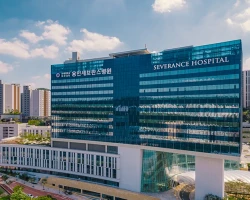
Yongin-si, South Korea
Specializations: Cardiac surgery, Vascular surgery, Thoracic surgery, Neurosurgery, Spine surgery, Orthopedic surgery, Oncology
Languages: Arabic, Chinese, English, Japanese, Mongolian, Russian
Yongin Severance Hospital provides safe and high-quality medical services through an efficient system of digital innovation. We pursue a multidisciplinary approach to treatment, under which
read more
4
from Emma M.
October 29, 2023
Super sweet and helpful lady navigated the hospital for me. She spoke in English to me and Japanese to the other employees. Sadly they were unable to help me without a reference letter from another doctor. She did help me find another clinic that was able to treat me, which was super nice!
5
from ひらやまはるひと
August 11, 2023
I am grateful for the robot surgery for hepato-biliary-pancreas transplant surgery.
It was the first time in 30 years since I was in elementary school that I was handicapped by another hospital and gripped the referral letter.
I started out as an outpatient with an uneasy feeling,
My primary care doctor was calm and gave me peace of mind.
I can't believe I can talk like this and be listened to
I don't know if you can explain this much. I was just amazed.
Both the outpatient nurses and the staff are very professional and behave
It was lovely.
From there, I had regular outpatient visits until the surgery date was decided.
It was my first general anesthesia, and I don't remember the 34 days after the surgery, but everyone on the team, the CCU, the nurses in the ward, the assistants, and the staff were sincere, and I was relieved. I only remember
I am surprised at how my physical condition changes from day to day.
I am glad that I had my surgery here.
thank you for helping me
5
from ふれいた2号
August 06, 2023
This time, on August 4th, I had my first visit to the department of diabetes endocrinology and metabolism. I received a letter of introduction and an appointment slip from the referral hospital and had a medical examination. Since it is a complete referral reservation system, patients who are completely new to the clinic cannot see a doctor unless they have a letter of introduction and an appointment slip. (This does not apply to emergency outpatient services.)
It was Kyoto University Hospital for the first time in ten years. From childhood to high school, I was treated for cleft lip and palate at our hospital's plastic surgery. It will be a medical examination from then on. The outpatient ward, the Sekitei ward, the middle ward, and the south ward group have changed considerably.
I was prepared that it would take some time to see a diabetic outpatient for the first time. is given a call receiver. This receiver is a versatile device that will notify you with the melody of twinkle twinkle stars and vibration when your turn comes.
Each outpatient has a two-stage waiting system with an outside waiting area, an inside waiting area, and an examination room. It is designed so that patients will not be crowded at once when it is crowded.
A sample test was performed again at the next visit, and a sample test was performed at the end of the consultation this time for comparison. I had the impression that the blood sampling room at other hospitals would be quite crowded, but our hospital was relatively empty, and I had the impression that there were many blood sampling tables and that the turnover was good. Accounting is also done only by submitting the accounting card to the accounting reception if you register the end of the medical examination with the call receiver.
After waiting for about 10 minutes, the medical fee will be displayed on the call receiver, and you will be notified with a sparkling star melody and vibration.
Pay with an automatic payment machine. This time, I was asked to lend out equipment such as a self-monitoring blood glucose meter and measurement sensor, and to issue an out-of-hospital prescription.
I have another appointment in a month, so I'm glad I chose this option.
Prices for popular procedures:
-
Patent ductus arteriosus (PDA) ligation in children
≈ $20,738
-
Patent ductus arteriosus (PDA) open heart surgery in adults
≈ $10,469
-
Transcatheter closure of patent ductus arteriosus (PDA) in adults
≈ $14,647
-
Dual chamber pacemaker insertion
≈ $15,968
-
Coronary artery bypass graft (CABG)
≈ $43,518
-
Heart valve replacement
≈ $54,023
-
Heart valve repair
≈ $40,257
-
Aortic valve replacement (AVR)
≈ $64,078
-
Mitral valve replacement (MVR)
≈ $52,185
3.6
5 reviews
4
from Emma M.
October 29, 2023
Super sweet and helpful lady navigated the hospital for me. She spoke in English to me and Japanese to the other employees. Sadly they were unable to help me without a reference letter from another doctor. She did help me find another clinic that was able to treat me, which was super nice!
5
from ひらやまはるひと
August 11, 2023
I am grateful for the robot surgery for hepato-biliary-pancreas transplant surgery.
It was the first time in 30 years since I was in elementary school that I was handicapped by another hospital and gripped the referral letter.
I started out as an outpatient with an uneasy feeling,
My primary care doctor was calm and gave me peace of mind.
I can't believe I can talk like this and be listened to
I don't know if you can explain this much. I was just amazed.
Both the outpatient nurses and the staff are very professional and behave
It was lovely.
From there, I had regular outpatient visits until the surgery date was decided.
It was my first general anesthesia, and I don't remember the 34 days after the surgery, but everyone on the team, the CCU, the nurses in the ward, the assistants, and the staff were sincere, and I was relieved. I only remember
I am surprised at how my physical condition changes from day to day.
I am glad that I had my surgery here.
thank you for helping me
5
from ふれいた2号
August 06, 2023
This time, on August 4th, I had my first visit to the department of diabetes endocrinology and metabolism. I received a letter of introduction and an appointment slip from the referral hospital and had a medical examination. Since it is a complete referral reservation system, patients who are completely new to the clinic cannot see a doctor unless they have a letter of introduction and an appointment slip. (This does not apply to emergency outpatient services.)
It was Kyoto University Hospital for the first time in ten years. From childhood to high school, I was treated for cleft lip and palate at our hospital's plastic surgery. It will be a medical examination from then on. The outpatient ward, the Sekitei ward, the middle ward, and the south ward group have changed considerably.
I was prepared that it would take some time to see a diabetic outpatient for the first time. is given a call receiver. This receiver is a versatile device that will notify you with the melody of twinkle twinkle stars and vibration when your turn comes.
Each outpatient has a two-stage waiting system with an outside waiting area, an inside waiting area, and an examination room. It is designed so that patients will not be crowded at once when it is crowded.
A sample test was performed again at the next visit, and a sample test was performed at the end of the consultation this time for comparison. I had the impression that the blood sampling room at other hospitals would be quite crowded, but our hospital was relatively empty, and I had the impression that there were many blood sampling tables and that the turnover was good. Accounting is also done only by submitting the accounting card to the accounting reception if you register the end of the medical examination with the call receiver.
After waiting for about 10 minutes, the medical fee will be displayed on the call receiver, and you will be notified with a sparkling star melody and vibration.
Pay with an automatic payment machine. This time, I was asked to lend out equipment such as a self-monitoring blood glucose meter and measurement sensor, and to issue an out-of-hospital prescription.
I have another appointment in a month, so I'm glad I chose this option.
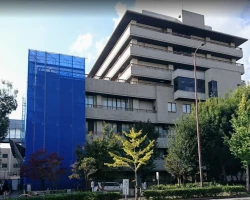
Kyoto, Japan
Specializations: Cardiac surgery, Vascular surgery, Thoracic surgery, Neurosurgery, Spine surgery, Orthopedic surgery, Oncology
Kyoto University Hospital was established in 1899, we have a 120-year history. We are committed to providing safe, relief medical care based on this three
read more
Clinics grouping by rating
Clinic with the highest rating of 5 — Clinical Hospital Lapino in Moscow, Russia and 5 more, clinic with the most reviews number of 35757 — Aster CMI hospital in Bengaluru, India.
With rating 4.0 and over — 249 clinics .
Countries with the highest number of clinics treating the diseases:
Patent ductus arteriosus (PDA):
worldwide
685 clinics
Brazil
46 clinics
India
38 clinics
Germany
36 clinics
Mexico
31 clinics
Turkey
30 clinics
Related procedures:
Procedures are likely to be used for Patent ductus arteriosus (PDA) treatment:
Patent ductus arteriosus (PDA) ligation in children,
Patent ductus arteriosus (PDA) open heart surgery in adults,
Transcatheter closure of patent ductus arteriosus (PDA) in adults,
and
Transcatheter closure of patent ductus arteriosus (PDA) in children
.
Quick navigation
Procedures
Diseases
- Balloon angioplasty and stenting of aorta coarctation $524 - $51,493
- Cardiac catheterization $241 - $10,343
- Coarctectomy in children $1,012 - $76,680
- Coil embolization of intracardiac shunts and fistulas $713 - $31,741
- Extracorporeal membrane oxygenation (ECMO) $952 - $1,131,510
- Heart tumor surgery $654 - $73,060
- Intraaortic balloon pump (IABP) procedure $155 - $256,865
- Left atrial appendage occlusion $2,159 - $163,295
- MAZE procedure $3,120 - $166,340
- Minimally invasive valvular heart surgery with valve repair or replacement $2,162 - $8,441
- NobleStitch™ PFO closure procedure ≈ $8,208
- Open-heart intracardiac foreign body removal $713 - $102,052
- Patent ductus arteriosus (PDA) open heart surgery in adults $1,512 - $45,319
- Percutaneous ASD closure $238 - $163,295
- Percutaneous closure of ventricular septal defect (VSD) $238 - $163,295
- Rashkind procedure $420 - $39,229
- Surgery for tetralogy of Fallot (TOF) in adults $1,880 - $58,384
- Surgical ventricular restoration (SVR) $832 - $78,568
- Transcatheter closure of patent ductus arteriosus (PDA) in adults $606 - $45,374
- Ventricular septal defect (VSD) repair $879 - $86,390
- Aortic valve insufficiency
- Aortic valve stenosis
- Atrial fibrillation (AFib)
- Coarctation of the aorta (CoA)
- Foreign bodies in the heart
- Heart failure
- Heart tumor
- Heart valve disease
- Mitral valve insufficiency
- Mitral valve stenosis
- Multivalvular disease
- Myocardial infarction (MI)
- Pneumonia
- Pulmonary hypertension
- Sinus of valsalva aneurysm (SOVA)
- Tricuspid valve insufficiency
- Tricuspid valve stenosis
- Valvular insufficiency
- Ventricular aneurysm
- Ventricular septal rupture (VSR)
